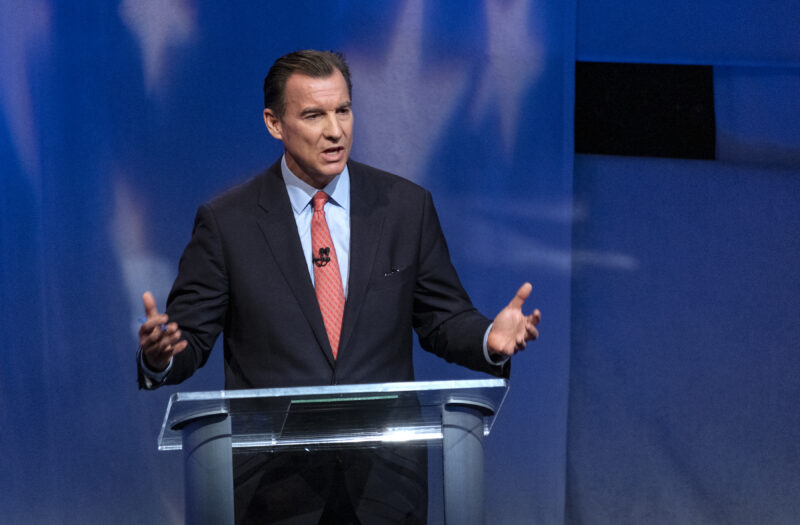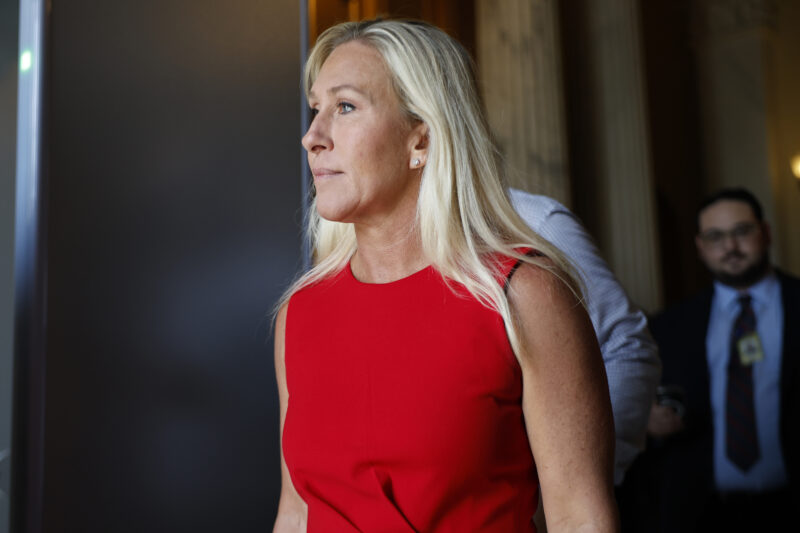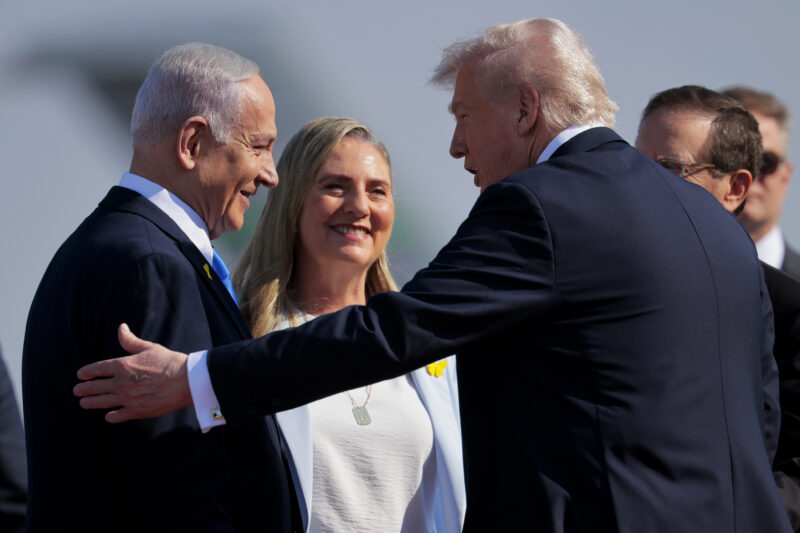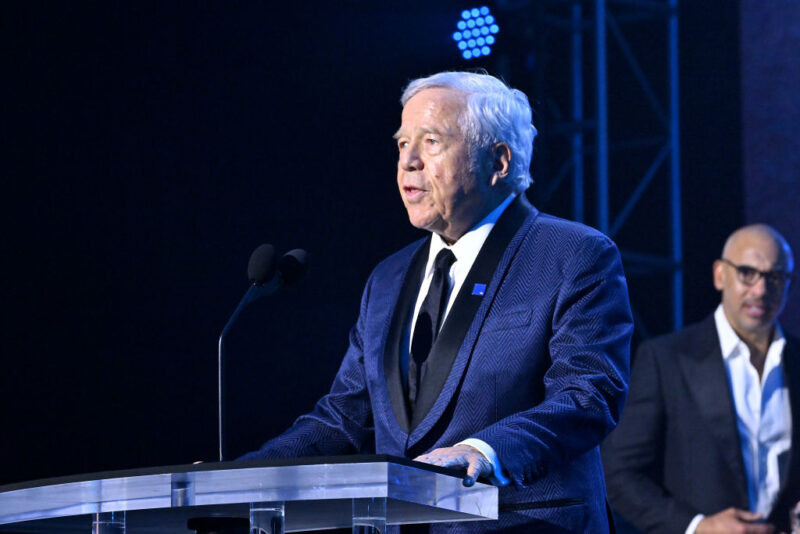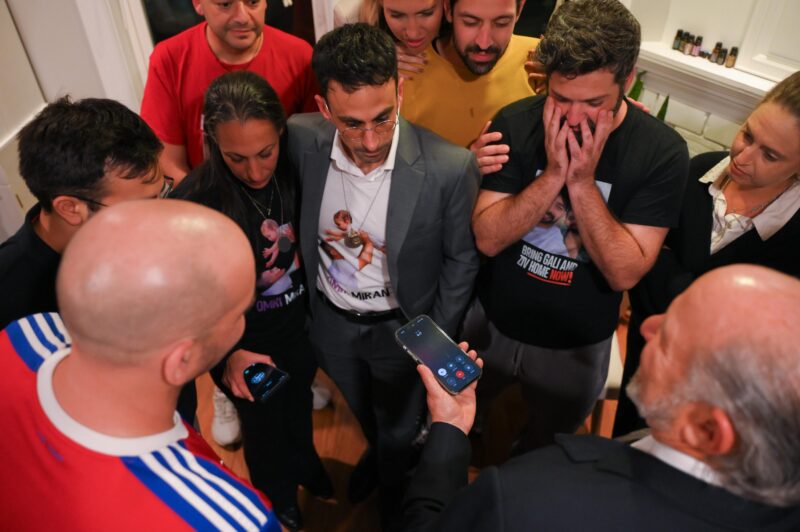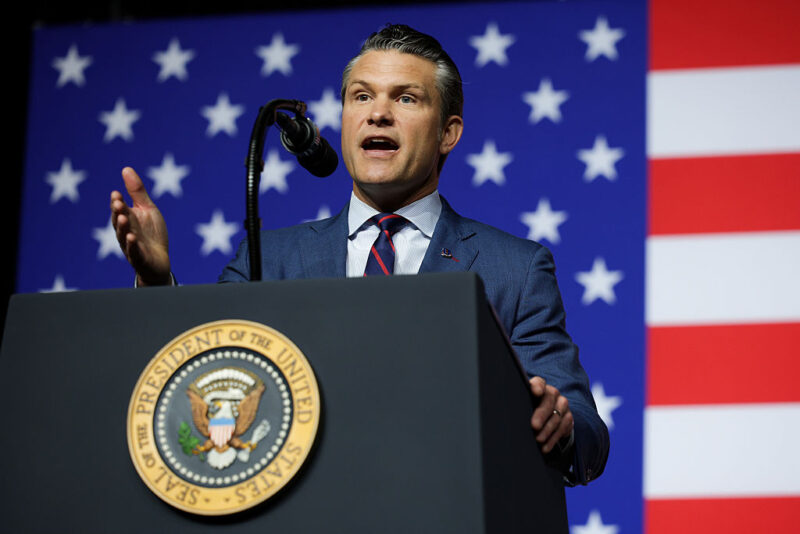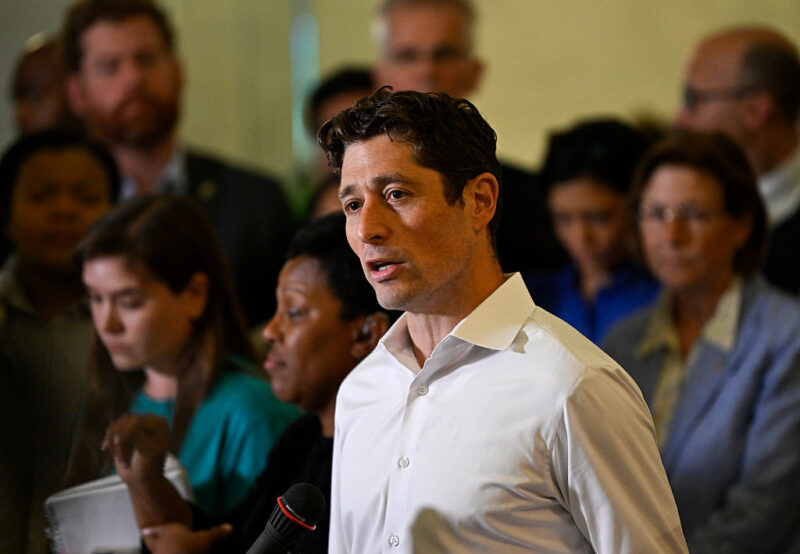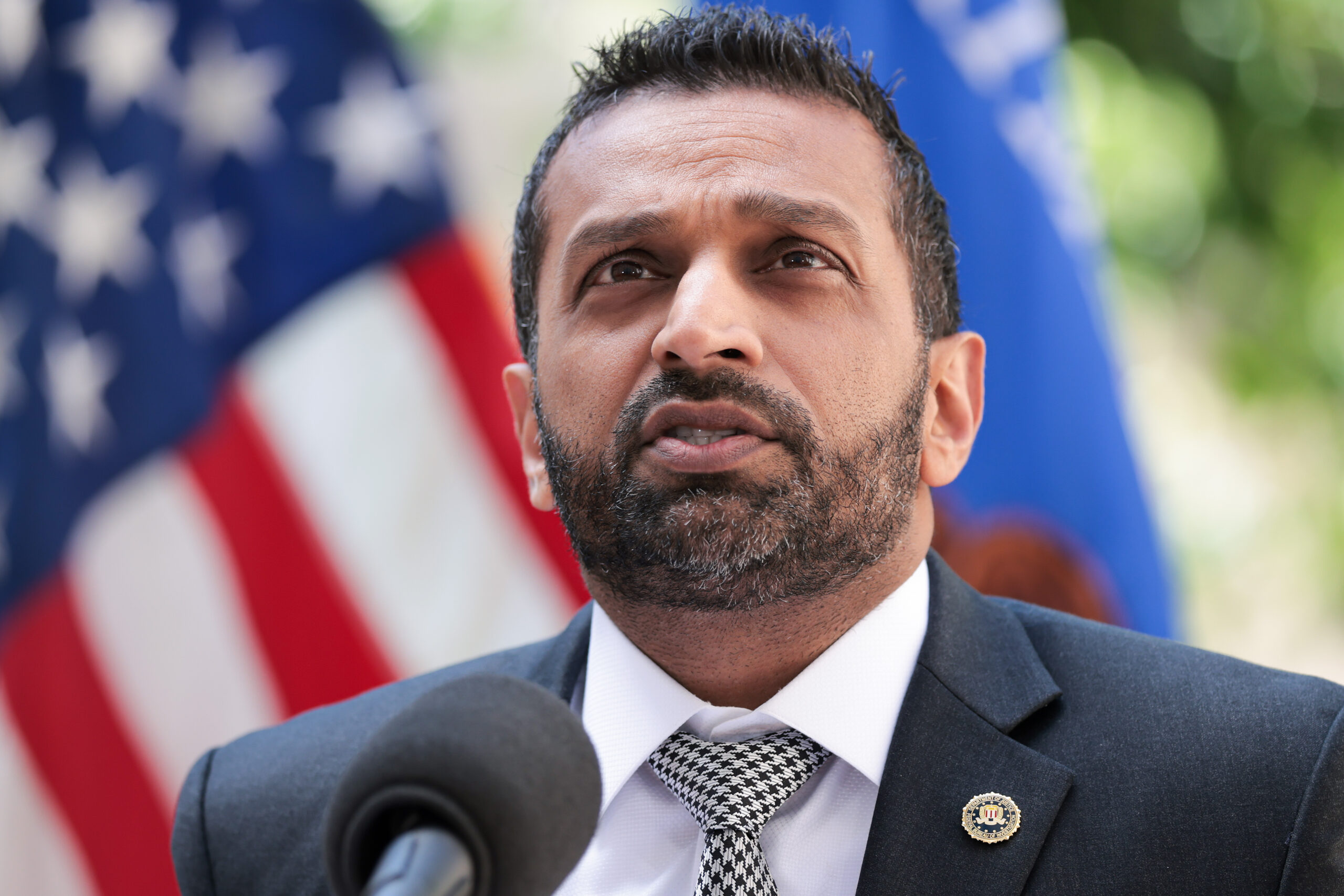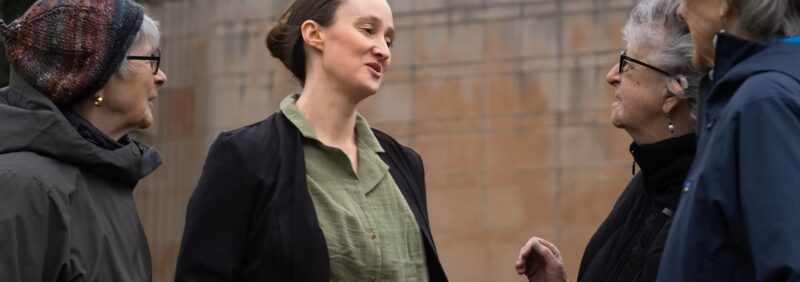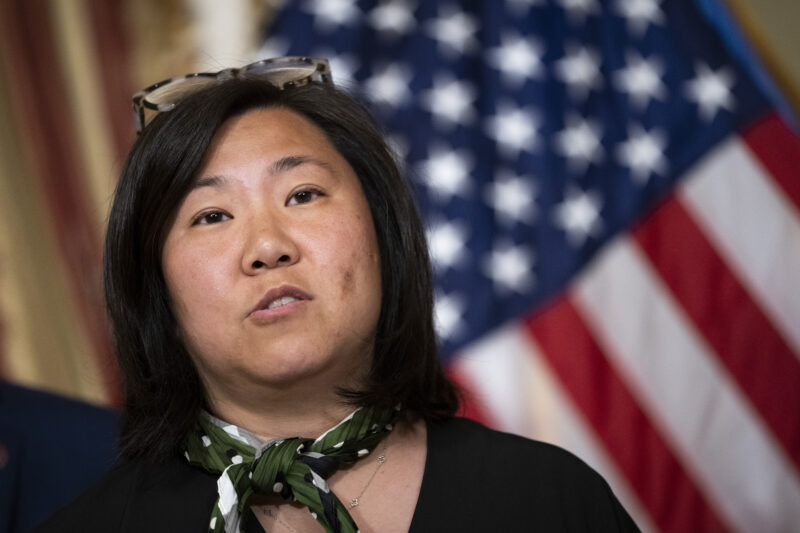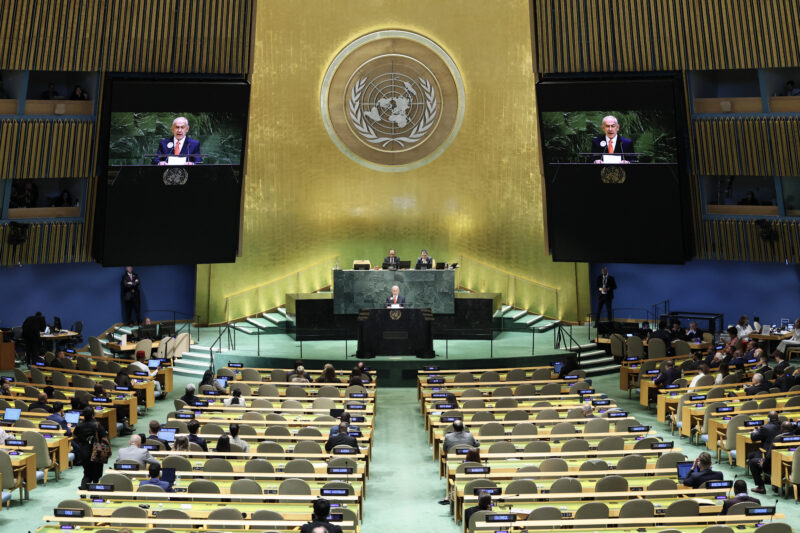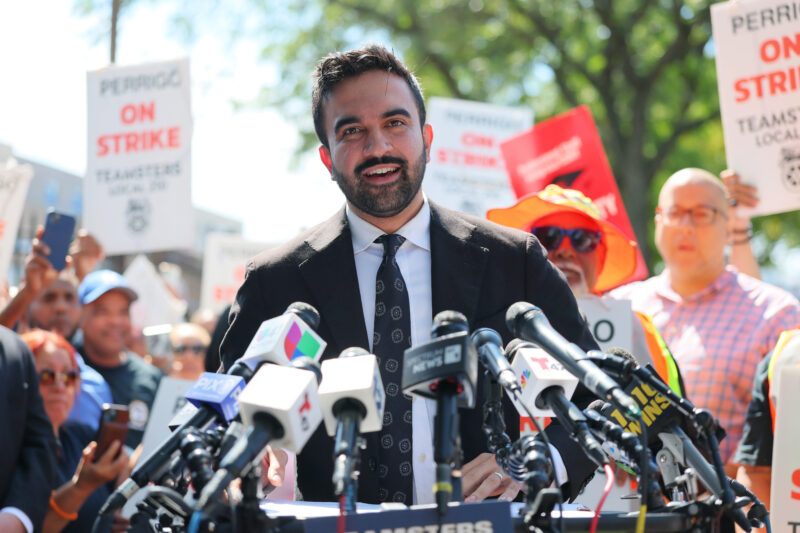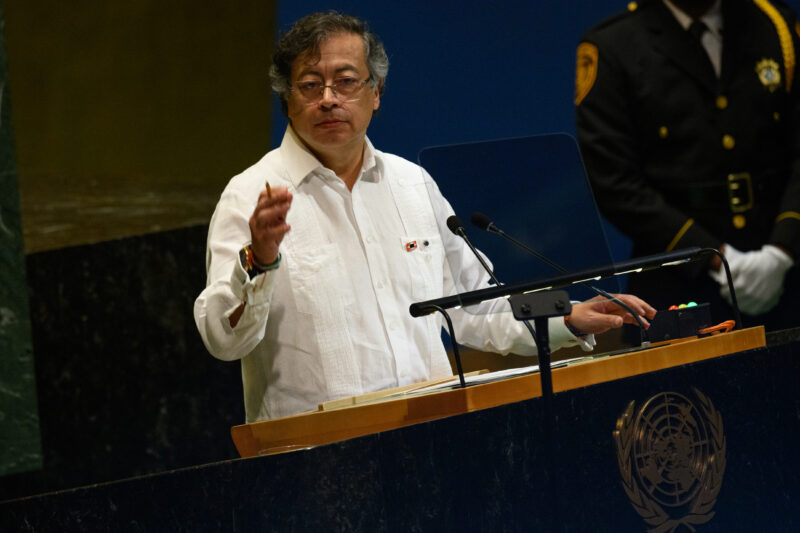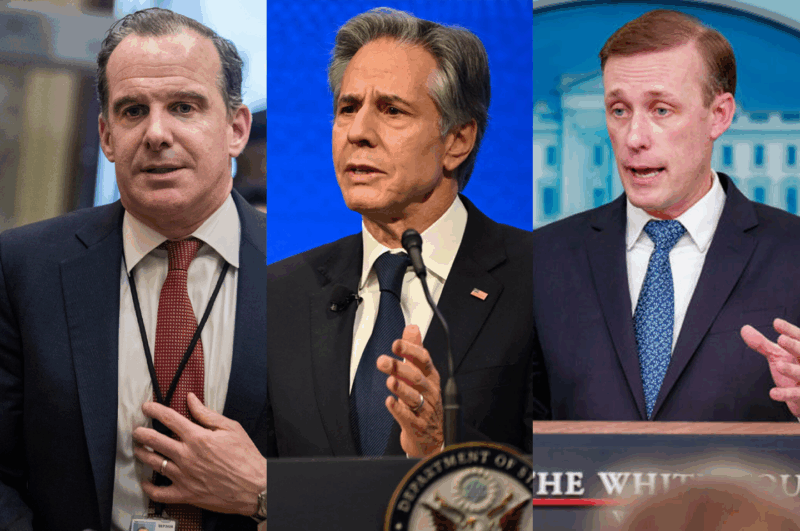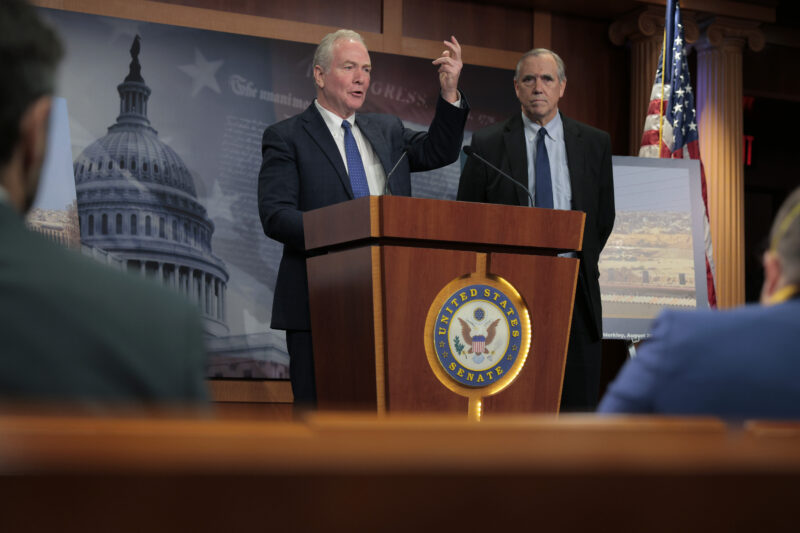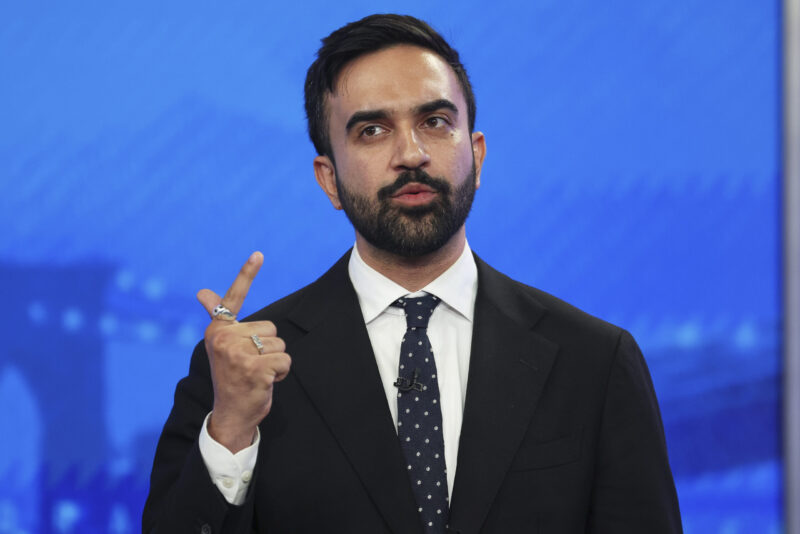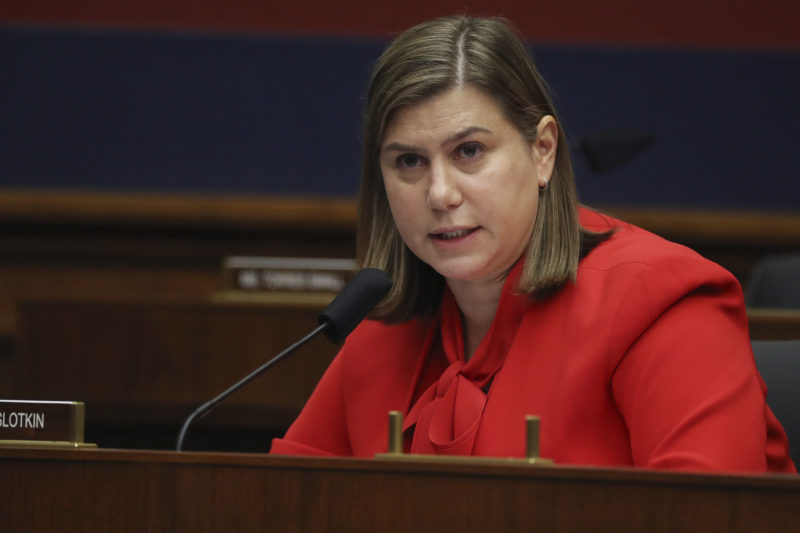GOP lawmakers are making concerted efforts to put the brakes on the Biden administration’s efforts to reenter the Iran deal

House Television via AP
Members of the House of Representatives vote on legislation at the U.S. Capitol in Washington on March 27, 2020.
Republican lawmakers in the Senate and House have introduced a surge of legislation in recent weeks seeking to further crack down on Iran and put the brakes on the Biden administration’s efforts to rejoin the 2015 nuclear deal.
The eight pieces of legislation address issues including tightening sanctions enforcement, expressing disapproval of the 2015 Joint Comprehensive Plan of Action (JCPOA), opposing easing sanctions on Iran and seeking to block the U.S. from reentering the JCPOA entirely.
Some of the measures have gained minimal traction, but others have found support among GOP lawmakers.
In the Senate, a bill sponsored by Sen. Bill Hagerty (R-TN) seeking congressional oversight over sanctions reductions has gained 27 cosponsors. A resolution introduced by Sen. Tom Cotton (R-AR) opposing any form of sanctions reduction that does not address both Iran’s nuclear program and its other provocations — such as its recent attack on U.S. personnel in Iraq and its exporting of terrorism through its Middle East proxies — has gained 31 cosponsors. The House companion legislation to Hagerty’s bill and Cotton’s resolution have 24 and 30 GOP sponsors, respectively.
Rep. Michael McCaul (R-TX), who sponsored the House version of Hagerty’s bill, told JI that the legislation seeks to give congressional oversight on sanctions relief in order to give the American people a voice in the process.
“I don’t want to see us again fall back into the scheme of Tehran blackmailing us and extorting us and us giving up sanctions for really very little of anything,” Hagerty said in an interview with Jewish Insider last week. “The concern I’ve got is that the Biden administration wants to roll back our sanctions, just in exchange for reentering the deal. It took us a long time to get the sanctions in place. We’ve got pressure on Iran now that is like never before. And this is not the time to be backing off.”
Rep. Andy Barr (R-KY), who introduced a House bill that seeks to compel the Biden administration to submit any replacement agreement for Senate consideration as a treaty, offered a similar argument.
“If the Biden administration wants to jeopardize the national security of Israel, one of our greatest allies, they should go through Congress to do so,” Barr told JI. “The Biden administration should work with Congress and our allies in the international community to construct similar sanctions implemented at the beginning of the Obama administration that proved effective, instead of accepting as a foregone conclusion that the Iranians will eventually become a nuclear power.”
Hagerty said Iran’s continued provocations under the Trump administration’s “maximum pressure” sanctions regime served as evidence that the U.S. should not back down on sanctions.
“I certainly would not want to provide more resources to Iran to do this,” he said, emphasizing that the 2015 deal had freed up funds to the regime.
The Tennessee senator said he expects sanctions to have more long-term success in curbing Iranian activities.
“We need to continue to put pressure on them,” he said. “Their economy is contracting, that has got to be felt broadly, in Iran, and that’s going to put pressure on the regime much more than anything else we could do right now.”
McCaul said that by limiting the Iranian regime’s access to funds — particularly $70 billion in oil revenue — sanctions created leverage for the U.S. in negotiations with Iran.
“I hope the Biden administration will use that leverage to secure a better, comprehensive deal with Iran,” he said. “President Trump’s crippling sanctions gave the Biden administration an opportunity we cannot afford to squander.”
Barr echoed McCaul’s sentiments. “Iran came to the negotiating table in the first place [in 2015] because of the crushing economic sanctions imposed by the United States and our allies,” he told JI.
Hagerty indicated that he believes the 2015 deal’s European signatories — France, the United Kingdom, Germany and Russia — have fundamentally different interests in negotiations than the U.S. does.
“Think about what the incentives are here: The Europeans want us to get into this deal because they want the sanctions released because they want to be back doing business with Iran again,” he explained.
The Tennessee Republican said the U.S. should not reengage in talks with Iran until the regime stops all of its attacks on U.S. forces, allies and contractors, and halts nuclear enrichment. Iranian officials have said that they will not return to the negotiating table until the U.S. has lifted sanctions on Tehran.
“They need to take a step back themselves, rather than expecting us to step up and fund them and make concessions without them doing anything,” Hagerty said.
Secretary of State Tony Blinken has pledged repeatedly that the U.S. will not withdraw any sanctions against Iran until it brings its nuclear enrichment back to compliance with the 2015 deal, but has also said that the U.S. is ready for talks to resume.
Hagerty argued that his legislation “ought to be widely bipartisan,” noting that it follows a similar framework to the 2017 Countering America’s Adversaries Through Sanctions Act, a provision of which prevented the president from repealing sanctions against Russia without congressional approval.
But bipartisan support has thus far not been forthcoming for Hagerty’s bill, nor any of the other GOP-led legislation addressing Iran’s nuclear program and the 2015 agreement. Without any Democratic support, the legislation is unlikely to pass through either chamber of Congress.
Nevertheless, the deluge of legislation reflects deep GOP opposition to and concern about the Biden administration’s approach to Iran — which has also taken center state during recent congressional hearings with Biden’s foreign policy appointees. “Members of Congress feel strongly about the Iran issue given the national security implications,” McCaul said “For an issue as important as this, we need all hands on deck.”
Democrats have been comparatively much less active in terms of legislative action on Iran. In the House, a bipartisan group of five centrist Democrats and one Republican introduced a resolution last week condemning Iran’s nuclear program. Senate Democrats introduced a resolution in late February calling for “a diplomatic resolution to Iran’s nuclear program”; it has 11 Democratic cosponsors but no GOP support.
Two other pieces of Iran-related legislation in the House — one calling for an inquiry into potential additional sanctions that could be placed on Iranian leadership and another calling, in broad terms, for a “democratic, secular, and non-nuclear” Iran — have bipartisan support, but do not directly address Iran’s nuclear program.
In addition to the resolutions, House members have also issued at least four letters regarding Iran since the 2020 election, including one from Democratic lawmakers urging sanctions relief and a quick reentry into the 2015 deal, one from Republicans urging a more aggressive approach to the Iranian regime and two bipartisan letters — one laying out a middle path and the other urging continued pressure on Iran.
Bill includes expanded PPP eligibility, unemployment reimbursements, state and local aid and direct aid to non-public schools

Associated Press
Senators stand and applaud support staff before the final vote on the Senate version of the COVID-19 relief bill in the Senate on March 6, 2021.
The Senate’s 50-49 passage of a $1.9 trillion coronavirus relief package on Saturday was hailed as a significant victory by Jewish community leaders who had lobbied legislators to include more provisions to support nonprofits and human services.
The package includes a range of provisions for which the nonprofit community had advocated, including an expansion of the Paycheck Protection Program allowing larger nonprofits operating in multiple locations to qualify for loans as long as they do not have more than 500 employees in any one location. It also provides a significant increase in unemployment reimbursements for self-insured nonprofits, as well as aid to state and local governments and an increased child tax credit.
The package’s passage came at the conclusion of an amendment process that ran for more than 24 hours into midday Saturday, which included the longest single vote in modern history of the Senate.
“We’re delighted,” Elana Broitman, Jewish Federations of North America’s senior vice president for public affairs, told Jewish Insider. “This is another major bill that addresses the difficulty of the pandemic on the communities we serve… and also the bottom line of the nonprofits that need to keep their doors open to continue to provide… services.”
Jody Rabhan, the chief policy officer for the National Council of Jewish Women, said the bill “will do more for the economy, families, individuals, than any legislation in the last 20-some years.”
Although the bill passed with only Democratic votes in both houses, Broitman said that the provisions of interest to the nonprofit community were “true bipartisan efforts.” Polling has indicated that the bill is popular with the American public broadly.
“The appropriators definitely understood the need for some of the PPP provisions, the tax provisions,” Broitman explained. “The heads of those committees, the chairs and ranking members of those committees, and [Senate] Majority Leader [Chuck] Schumer — his office really understood the need of the nonprofits.”
In a win for religious schooling advocates, the Senate also added an additional $2.75 billion in designated aid for non-public schools — matching the amount included in the December 2020 relief bill and replacing a more limited funding stream that the House had included in its relief bill. Under the provisions in the Senate bill, non-public schools also deal directly with state education agencies to apply for funding, rather than going through local school districts to determine what spending is covered. Orthodox Union Advocacy Center Executive Director Nathan Diament credited Schumer, as well as Sen. Ben Cardin (D-MD), for spearheading the effort to include the funding.
“Much of what we were seeking is in the bill, and I will say very significantly thanks to the leadership of Senator Chuck Schumer, but also with the help of Senator Cardin as well as some others,” Diament said. “We’re very grateful to Senator Schumer for having led this particular piece. It was not without resistance.”
Schumer told JI that he sought to ensure that all students had access to sufficient resources to weather the crisis.
“The bottom line is that this pandemic has hurt every school and every schoolkid, and we should do all we can to help each and every one of them confront and overcome the COVID crisis, both public and private,” the New York senator said. “This fund, without taking any money away from public schools, will enable private schools, like yeshivas and more, to receive assistance and services that will cover COVID-related expenses they incur as they deliver quality education for their students.”
Broitman emphasized that the funding will especially help non-public schools serving low-income families.
The provision in the latest bill is not identical to the one included in the December 2020 bill — it does not lay out what expenses are eligible for funding, as the December bill did. The bill also prohibits the money from going towards reimbursements for COVID-related expenses, a change from how many state education departments are distributing funding from the December package, according to Diament.
“We’re going to have to work with the Department of Education to put it in a format that’s workable for the schools,” Diament said. “Senator Schumer’s staff has said he put the money in so he’s committed to helping us work with Secretary [of Education Miguel] Cardona and his team on implementation.”
Republican Sen. Bill Cassidy (R-LA) proposed an amendment that would have changed the bill’s language to apply the rules for non-public school funding included in the December package, but the Senate voted it down along party lines at 3:35 a.m. on Saturday.
“It would have been much more clear and simple,” Diament said. “It’s kind of a shame that it was done at the point where basically Democrats were voting down all amendments, even though we had expected that some Democrats would have voted for the amendment.”
The inclusion of dedicated funding for non-public schools riled the National Education Association — the nation’s largest teachers’ union — which released a statement “convey[ing] our strong disappointment in the Senate’s inclusion of a Betsy DeVos-era $2.75 billion for private schools — despite multiple avenues and funding previously made available to private schools.”
According to a lobbyist familiar with the negotiation process, Sen. Patty Murray (D-WA), the assistant Senate Democratic leader, sided with teachers’ unions as a vocal opponent of the non-public school funding during negotiations.
“She is an advocate for the views of the public sector unions like the NEA and the [American Federation of Teachers],” the lobbyist said. “They’re opposed to any money going to help any kind of non-public schools in any circumstances, including a global pandemic. They don’t really believe that we’re all in this together.”
Murray did not respond to a request for comment.
JFNA’s Broitman highlighted other provisions of interest to the federations’ umbrella group in the package, including ones she said could give homebound seniors access to vaccines through both transportation to vaccine sites and mobile vaccinations; she also cited programs including increased funding for older Americans, nutrition assistance and child-care block grants.
The bill also provided an additional $510 million for the Emergency Food and Shelter Program, which JFNA has “been a key proponent of,” Broitman said. The EFSP program supports programs like food pantries and rent assistance.
“We’ve all seen the stories about the long food lines, the worries about eviction,” she said. “There are a number of Jewish human service agencies that serve these populations, so being able to get the data about the suffering of the communities [to lawmakers] was really helpful.”
Despite these victories, Jewish nonprofits were not able to push through all of the changes they’d hoped would be incorporated into the final legislation. JFNA had been lobbying senators for further increases in unemployment insurance reimbursements — from 75% in the bill as passed by the House to 100% — as well as an extension of the application deadline for PPP loans, but neither change was included in the Senate’s finalized bill.
With no further COVID relief bills on the immediate horizon, Broitman acknowledged there may not be another opportunity to push these changes through in the near future. But, she added, JFNA will monitor data from federations and agencies to assess future needs and pass that information along to lawmakers as they contemplate future legislation.
Despite her praise for the bill, NCJW’s Rabhan explained that the legislation was limited in what it could accomplish because it was passed under budget reconciliation, a method allowing the Senate to bypass the filibuster on certain tax and spending bills.
Reconciliation rules forced the Senate to strip a federal minimum wage increase out of the bill, and led the House to set aside national paid leave from the start, according to Rabhan.
“There are limitations to reconciliation,” she said. “It’s like all things in politics and you’re weighing the pros and cons. The Democrats determined the best way to get the president’s rescue plan through was through reconciliation.”
During last-minute negotiations on Friday, the Senate also scaled back plans for unemployment benefits, primarily because Sen. Joe Manchin (D-WV) opposed Senate Democrats’ original, more ambitious plan. Under the terms of the current bill, the Senate may have to scramble to pass another extension of unemployment insurance, which currently runs out in early October before going on recess in September, Rabhan noted.
Since the Senate made revisions to the version of the package the House passed in late February, it will now return to the House for expected final passage on Tuesday, before Congress sends it to President Joe Biden for his signature.
eJewish Philanthropy’s Helen Chernikoff contributed reporting.
Concerted efforts from Sen. Jacky Rosen and outside groups helped push the long-delayed measure through a divided Congress

Courtesy
Sen. Jacky Rosen
A bill elevating the State Department’s special envoy to monitor and combat antisemitism to the rank of ambassador passed Congress on Thursday, nearly two years after first being introduced. Prior to its passage, the legislation appeared to stall in the Senate, raising concerns in the final days of the 116th Congress that legislators might have had to start over in the new Congress.
The House of Representatives first passed its version of the bill on Jan. 11, 2019. But — despite broad bipartisan support for the legislation — procedural issues bogged down the bill once it reached the Senate.
Several proponents of the bill both inside and outside Congress told JI that they believed the bill was going to die in the Senate, forcing a reset in the new session of Congress, which began January 3. This characterization was disputed by other Hill staffers and activists who had been communicating with senators to advance the legislation.
“I wouldn’t say it was dead, but it needed outside help,” a Republican aide told JI.
The bill was hampered by a dispute over whether to pass an amended version of the House bill or an identical bill that originated in the Senate, according to two Senate aides familiar with the bill, as well as American Jewish Congress President Jack Rosen.
Rosen, who spoke to several senators in an effort to move the bill forward, said Foreign Relations Committee ranking member Sen. Bob Menendez (D-NJ) preferred to pass the bill as a Senate measure. Menendez did not respond to a request for comment.
Backers of the legislation told JI that Sen. Jacky Rosen (D-NV) was critical to clearing the roadblocks that stood in the way of the bill’s passage.
“Rosen became incredibly engaged and helpful,” a Senate Republican aide familiar with the bill told JI. Both Senate staffers familiar with the bill said that the senator had aggressively pushed colleagues to pass the legislation.
“Senator Rosen… moved this up in her agenda and began to push her colleagues,” Karen Barall, director of government relations for Hadassah, told JI. “She was very effective in ensuring this was understood to be an important measure. Without her, this would not have passed the Senate.”
Rosen told JI she was pleased that the bill passed through both chambers by unanimous consent — a procedure used to expedite legislation without requiring a formal vote. “In the Senate, I was able to build on my bipartisan record of working with colleagues to fight antisemitism by ensuring this critically important bill was brought to the floor and passed,” she said.
The Senate passed the bill on December 16, leaving a narrow window for the House to pass the amended bill and send it to the president’s desk before the end of the 116th Congress.
To ensure the bill made it through the House, supporters had to contend with a chamber focused on urgent debates over government funding and COVID-19 relief payments, as well as disputes between Republican and Democratic leadership, generating concerns that the bill would not make it back through the House before the end of session.
“The issue that came up was not a substantive issue related to the text of the legislation, but rather they got caught up in Republican and Democratic food fight over other issues,” a pro-Israel activist involved in discussions about the bill said.
In addition to Rosen and the bill’s lead sponsors in the House, Reps. Chris Smith (R-NJ) and Brad Schneider (D-IL), a number of Jewish advocacy organizations joined the effort, including the Anti-Defamation League, Hadassah, the Orthodox Union, American Jewish Congress, American Jewish Committee, Jewish Federations of North America and the Conference of Presidents of Major American Jewish Organizations.
“After the Senate voted, there was very little time for the House leadership to act and major legislation — the NDAA, the omnibus, COVID relief — were understandably top priorities for House leadership,” said Barall. “Hadassah and other organizations made an aggressive push to get this done though, and send the bill to the president.”
The pro-Israel activist who asked not to be named credited Smith and Schneider for winning the support of their respective parties’ leaders to allow the bill to pass by unanimous consent on December 31.
Assuming President Donald Trump signs the bill, President-elect Joe Biden will become the first president to nominate a special envoy on antisemitism for Senate confirmation, although it will likely take time before he announces a pick for the spot, and even longer for the nominee to be confirmed.
Trump took 23 months to nominate the current special envoy, Elan Carr, for the position. An individual involved in discussions over the bill told JI that he expects an extended delay to fill the slot, noting that Senate-confirmed nominees face a more expansive background check process, and must go through the lengthy confirmation process, which can take months.
Given that Biden still has yet to nominate some Cabinet secretaries and a range of other high-level appointees that will require Senate confirmation, it’s unlikely the president-elect will name his pick for the position before his inauguration on January 20, the source added.
Among the names said to be under consideration by the Biden transition team are former ADL national director Abe Foxman, past envoy Ira Forman, Emory University professor and noted Holocaust historian Deborah Lipstadt, University of California, Berkeley professor Ethan Katz and ADL senior vice president of international affairs Sharon Nazarian. Foxman and Katz declined to comment to JI. Lipstadt did not respond to a request for comment.
Nazarian confirmed to JI she has spoken to members of the Biden transition team about the role and is submitting a formal application. She posited that her experience at ADL, as well as her personal experiences as an Iranian-born Jew, uniquely qualify her to expand and advance the special envoy’s office.
“My number one mission every day… is to advocate and to monitor and to educate, and to train as many people, stakeholders, government officials, as I can to first of all, make them aware of the threat of global antisemitism, and how it manifests in our lives today,” Nazarian said. “I feel like I’m well-positioned both as a practitioner of this work, as someone who’s led a very large team at ADL at the senior executive level, and also [as] someone who’s lived it through my own intersectional identity.”
Nazarian argued that the special envoy’s office, to date, has not taken a sufficiently modern or forward-looking approach to antisemitism, and has relied too heavily on 20th-century understandings of and approaches to global antisemitism.
Forman, who served as special envoy under former President Barack Obama from 2013 to the end of Obama’s term, declined to say if he was in consideration for the slot, but told JI, “I know there are a number of highly qualified people who could undertake this critical work and I am confident the Biden team will make an excellent choice.”
Festive swearing-in process roiled by discord over election results, COVID precautions

Bill Clark/AP
House Speaker Nancy Pelosi administers the oath of office to members of the 117th Congress.
The deep divisions that marked the 116th Congress showed no signs of abating on the first day of the 117th session on Sunday. As new members in both houses were sworn in, Capitol Hill was focused on challenges to the results of the November election and discord over congressional COVID-19 protections.
In the Senate, all four first-term GOP senators are joining a long shot effort by Sen. Ted Cruz (R-TX) to delay the counting of the Electoral College votes.
Sen. Roger Marshall (R-KS), said that he felt voters wanted representatives to continue to “follow through” on “irregularities” in the election.
“This is a decision of the heart that we need to follow through on some of these irregularities,” Marshall said Sunday in a press gaggle. “We want our day in court where everybody’s in the same room, put all the facts down and then let America decide.”
State and federal courts nationwide have repeatedly thrown out a series of lawsuits from President Donald Trump and his allies over the election results. Despite the dismissal of dozens of related court cases, Marshall insisted: “I don’t think that the courts have heard all of the facts.”
The Kansas freshman demurred when asked if he thought Senate Majority Leader Mitch McConnell (R-KY) had erred in attempting to quash the election challenges in the Senate, adding that he thinks the divisions in the conference will “make us stronger” and “prove that we can listen to each other and still come to some type of agreement that we’re professionals and we can respect each other’s opinion.”
Shortly afterward, Sen. Roy Blunt (R-MO), who opposes the election challenges, took a different tone, remarking that efforts to overturn the results are bound to fail. “I actually like to come up with plans that have a chance of being successful,” he said.
Sen. Tom Cotton (R-AR), usually a close ally of the president and a likely 2024 presidential hopeful, broke with Trump Sunday night, announcing he would also oppose the election challenge.
Incoming Democrats also faced questions about Republican moves to overturn the election results.
Sen. John Hickenlooper (D-CO), the only Senate Democrat to flip a Republican-held seat this cycle, cast an optimistic tone despite the tension in the chamber.
“Many Republicans are being torn in different directions. This is a great experiment in democracy. And this is a test and I think we’re going to get through it,” Hickenlooper said.
On the other side of the Capitol, House Speaker Nancy Pelosi (D-CA) eked out another term as speaker of the House — one she previously said would be her last — with the votes of 216 Democrats, having secured support from several representatives who opposed her in the past.
Two Democrats voted for alternative picks — Rep. Jared Golden (D-ME) cast his vote for Sen. Tammy Duckworth (D-IL), while Rep. Conor Lamb (D-PA) voted for Rep. Hakeem Jeffries (D-NY). Reps. Mikie Sherrill (D-NJ), Elissa Slotkin (D-MI) and Abigail Spanberger (D-VA) — all centrist Democrats with backgrounds in national security — voted present.
All 209 Republicans present for the vote backed House Minority Leader Kevin McCarthy (R-CA).
Res. Alexandria Ocasio-Cortez (D-NY) and Rep. Cori Bush (D-MO) — a progressive upstart who unseated a longtime Democratic congressman in Missouri’s first district — cast their votes for Pelosi late in the afternoon, after missing their assigned voting time — which had been divvied up alphabetically to limit the number of representatives on the floor and allow for social distancing.
Ocasio-Cortez’s delayed vote prompted questions about whether she had been holding out for concessions from Pelosi, something Ocasio-Cortez rejected after casting her vote. Ocasio-Cortez told The Intercept last month that she thought the House leader and other top Democrats needed to be replaced, but that there were currently no viable alternatives.
“We are just an extremely slim amount of votes away from our side risking the speakership to the Republican Party,” Ocasio-Cortez said Sunday. “This is bigger than any one of us and that is consequential… This is not just about being united as a party. It’s about being united as people with basic respect for rule of law, our Constitution and the actual underpinnings of American democracy.”
The New York congresswoman added that she believed Trump should be impeached over his call with Georgia Secretary of State Brad Raffensperger, reported by the Washington Post on Sunday, during which Trump suggested that Raffensperger “find” enough votes to reverse his defeat in Georgia.
“If it was up to me, there’ll be articles on the floor quite quickly,” Ocasio-Cortez said.
Rep. Ilhan Omar (D-MN) similarly called for Trump’s impeachment, and criminal prosecution, on Twitter on Sunday night.
Hostilities in the House began even earlier in the day, during the early afternoon quorum call to open the new session of Congress, when Rep. Marjorie Taylor Greene (R-GA) — who has promoted antisemitic conspiracy theories — and another incoming Republican legislator prompted a “screaming match” between Republican and Democratic staffers by refusing to wear masks on the House floor, in violation of House coronavirus rules.
House Republicans also objected to a new plexiglass enclosure on the House floor designed to allow House members who are nominally quarantining for COVID-19 exposure but have tested negative to vote on the floor, prompting a dispute between Rep. Rodney Davis (R-IL), the ranking member of the Committee on House Administration, and attending physician Brian Monahan.
Davis described Monahan’s explanations of the setup as “horseshit” and claimed that the “only reason this is happening is because Speaker Pelosi needs to be re-elected speaker.”
Once the speaker election wrapped up in the late afternoon, the House hit another snag when Rep. Chip Roy (R-TX) forced a recorded House vote on whether to swar in elected members from Arizona, Georgia, Michigan, Nevada, Pennsylvania and Wisconsin, which was widely viewed as an attempt to put his GOP colleagues on record as accepting all the election results in these states, despite disputing the results of the presidential race.
“It would confound reason if the presidential results of these states were to face objection while the congressional results of the same process escaped public scrutiny,” he explained on Twitter. Two Republicans, Reps. Morgan Griffith (R-VA) and Andy Harris (R-MD) voted against swearing in all new members of Congress.
Roy was one of seven House members, including Reps. Thomas Massie (R-KY), Tom McClintock (R-CA), Ken Buck (R-CO), Kelly Armstrong (R-ND), Mike Gallagher (R-WI) and Nancy Mace (R-SC) who released a joint statement Sunday afternoon denouncing their colleagues’ challenge to the election results.
The day’s events concluded when Pelosi swore in the new Congress — mostly in one large group of members who had rushed to the floor to vote on the swearing-in issue — scrapping a previous plan to swear in members in small groups.
After the first swearing-in, hundreds of representatives flooded out of the House chamber, packing nearly shoulder-to-shoulder into the hallway outside, social distancing forgotten.
Advocacy groups say a potentially divided government will not change their approach, priorities

Amos Ben Gershom/GPO
Israeli Prime Minister Benjamin Netanyahu and his wife, Sara, meet with U.S. Vice President Joe Biden and his wife, Jill, at the Prime Minister’s Office in Jerusalem on March 9, 2016. (Amos Ben Gershom/GPO)
As President-elect Joe Biden’s cabinet shapes up and the final few days of the 116th Congress tick by, national Jewish and pro-Israel groups are planning out their agendas for the next administration and new Congress.
Priorities and approaches, laid out in a series of interviews with Jewish Insider, vary from group to group, but frequent themes for at least three — including J Street, the American Jewish Committee and the Jewish Federations of North America — unsurprisingly include diplomacy with Iran, the Israeli-Palestinian peace process and tackling domestic antisemitism.
Some of the organizations, like JFNA, have communicated with Biden’s transition team in the weeks following the election. The group laid out a detailed set of priorities in a memo to Biden’s transition team, according to Elana Broitman, JFNA’s senior vice president for public affairs, that fall into several categories including COVID relief, increasing nonprofit security funding and fighting antisemitism. Broitman added that the organization is pushing legislators to codify the International Holocaust Remembrance Alliance working definition of antisemitism, prioritize healthcare and increase efforts to support Holocaust survivors.
J Street’s policy agenda includes reentering the 2015 nuclear deal with Iran and deescalating military tensions, rolling back Trump administration actions the organization sees as antithetical to Israeli-Palestinian peace, opposing annexation and settlement expansion and otherwise promoting peace.
Dylan Williams, J Street’s senior vice president for policy and strategy, told JI the Biden administration should take a number of major early steps toward peace, including reestablishing a separate consulate in Jerusalem to serve Palestinians, reissuing State Department guidance on discussing settlements and reinstating and expanding humanitarian aid to the Palestinians, including through the U.N. agency tasked with working with Palestinians.
Williams added that the organization has urged Palestinian leadership to “take advantage of the opportunity that this new administration provides” and change its policy of paying Palestinian prisoners jailed for terrorist activities — something the Palestinian Authority is reportedly working toward.
“I think that you will see a vast amount of opportunity for improvements in U.S.-Palestinian relations, in the event that Palestinian leadership follows through on those discussions,” he added.
In the longer term, Williams argued that Congress will be critical in pushing back against “deepening occupation and creeping annexation,” and called for legislators to investigate the Trump administration’s efforts to “blur the distinction between Israel and the settlements,” introducing new measures to clarify that distinction and conducting oversight of how Israel is using American aid.
J Street communications director Logan Bayroff added that he’s hopeful the Biden transition team and Congress will signal their commitment to re-entering the Iran deal to counter what he described as the Trump administration’s efforts to foreclose the possibility of diplomacy with Iran.
“Trump’s trying to start a lot of fires and deliberately trying to provoke the Iranians into saying, ‘Well, we can’t work with any American administration,’” Bayroff said.
The American Jewish Committee, which opposed the JCPOA in 2015, is taking a more restrained approach. “We had grave concerns about the Joint Comprehensive Plan of Action,” said Jason Isaacson, the group’s chief policy and political affairs officer. “We will be urging the Biden administration to work in close coordination with our European and Middle East allies.”
The group — in contrast with J Street — will encourage the administration not to “remove from the U.S. negotiating arsenal the leverage that exists because of the sanctions imposed under President Trump,” Isaacson added.
AJC intends to focus on two pieces of legislation it supported during the current session of Congress in the event that they do not pass this year: the Jabara-Heyer NO HATE Act and the Partnership for Peace Act.
AIPAC declined to discuss its policy agenda until it announces its priorities for the new Congress next year, but spokesman Marshall Wittmann said: “We look forward to working with the incoming administration and Congress on an agenda of further strengthening the U.S.-Israel relationship and advancing our mutual interests in the region.”
Each group will also have to contend with a potentially divided Congress, should Democrats not sweep January’s Senate run-offs, and a shrunken Democratic majority in the House, which will likely create hurdles for lawmaking on a range of issues.
While Williams was not optimistic about the possibility of bipartisan compromise, he noted that a divided Congress is “a situation we’ve been in for some time.”
“I can’t point to anything that we’re not pushing for anymore, just because the Senate doesn’t happen to be held by Democrats,” he added.
Leaders from AJC and JFNA highlighted their groups’ abilities to work with both Republicans and Democrats.
“AJC has always been an organization that values nonpartisanship, that worked with members of Congress from both sides, administrations of both parties, that hews to the center representing the broad mainstream of the American Jewish community,” Isaacson said. “I believe that in the center lie solutions to many of the problems we’re discussing.”
“We’ve been in the business of advocacy on issues of concern to our community for more than a century… We have found ways over the years to work with leaders on both sides of the Hill and both sides of the aisle,” Isaacson continued. “I believe the message from the voters is stop playing games. Try solutions.”
JFNA President Eric Fingerhut said his organization is in a similar position.
“Our strength is in bipartisan work,” he said, noting JFNA’s longstanding relationships with officials in Washington and among state and local legislators.
“This is, I think, the moment when the longstanding work of our community to build relationships on all sides comes to fruition,” Fingerhut said. “We’re in a very strong position to put forward the priorities of the Jewish community… We have leaders who are on both sides of the aisle, and we’ve always had that.”
The case concerns a collection of art sold to the Nazis by Jewish art dealers in 1935

Kjetil Ree
Supreme Court of the United States
A bipartisan group of lawmakers is raising concerns over efforts by the German government to petition the Supreme Court to dismiss a case involving property purchased from Jews by the Nazis in 1935.
In a strongly worded letter to German Ambassador to the U.S. Emily Haber, members of Congress expressed concern about Berlin’s petition to the Supreme Court in relation to more than half of the famed Guelph Treasure, a collection of more than 80 pieces of medieval art. The German government has argued that it cannot be sued under U.S. law over the pieces, sold in 1935 by a collective of Jewish art dealers to Nazi agents, and now displayed in a German museum.
Heirs of the items’ Jewish owners are suing in U.S. court to recover the 42 pieces of art, arguing that they were sold under duress for far less than their true value.
In their letter, the representatives — including Reps. Jim Banks (R-IN), Abigail Spanberger (D-VA), Elaine Luria (D-VA), Josh Gottheimer (D-NJ) and Debbie Wasserman Schultz (D-FL) — express concerns about the German government’s arguments in the case, claiming that suits over stolen property during the Holocaust are permitted under U.S. law.
The letter highlights concerns regarding the German brief filed in the case, which argues in part that the transfer did not occur under duress and that the forcible seizure of artwork does not constitute an act of genocide.
“We are concerned that the brief your government has filed has attempted to distinguish the forced sale of the cultural artwork collection in question from ‘expropriation’ under international law,” the letter reads. “Putting aside the legal argument… your government seems to be arguing that forced sales of art to the Nazi regime do not constitute takings at all and that the definition of genocide does not include… the full elimination of Jews from German economic life starting in 1933.”
“The brief your government filed seems to suggest that genocide is understood as involving infliction of physical killing and harm, but not economic crimes,” the letter continues. “This is deeply concerning.”
The German Embassy did not immediately respond to a request for comment.
Spanberger explained to JI that a rabbi in her district, Dovid Asher, brought the issue to her attention. She emphasized that legislators sought specifically to raise concerns about “the missing historical context” in the German government’s brief, and not to weigh in on the case as a whole.
The letter seeks to “reiterate the U.S. Congressional record on the Holocaust and genocide more broadly,” Spanberger said in a statement. “As the international community continues to work toward justice and to educate people of all backgrounds and generations about the Holocaust, it is important that we recognize the full-scope of systemic persecution that took place.”
In a statement to JI, Banks expressed support for the families suing the German government.
“The U.S. Congress can’t give back the millions of lives taken during the Holocaust and it can’t come close to righting Nazi Germany’s wrongs, but we can do our part to give the victims’ ancestors back a small part of what was stolen from them,” he said.
Asher told JI that he approached Spanberger because she had been receptive and approachable on a variety of issues of concern to the Jewish community since being elected in 2018.
“She is incredibly thoughtful, incredibly sensitive, and incredibly kind,” he said. “Whether the issue pertains to Israel or to antisemitism in the U.S. or abroad or Holocaust issues, I knew that I would have somebody in our corner who would fight on behalf of what’s right.”
Oral arguments in the case are set for Dec. 7.
‘We know that what may begin as online threats in the virtual world can lead to violence in the real world,’ Rep. Ted Deutch tells JI

YouTube
Rep. Ted Deutch (D-FL)
A bipartisan group of members of Congress will announce on Tuesday the creation of a new global inter-parliamentary task force to combat digital antisemitism.
Members of the task force include Reps. Ted Deutch (D-FL), Debbie Wasserman Schultz (D-FL), Chris Smith (R-NJ) and Mario Diaz-Balart (R-FL), along with elected officials from major parties in Canada, the U.K. and Australia. Another member of the panel is member of Knesset Michal Cotler-Wunsh from Israel’s Blue and White Party, the daughter of former Canadian Justice Minister Irwin Cotler. In July, Cotler-Wunsh challenged a Twitter spokesperson during a Knesset hearing over the company’s decision not to delete or flag a post by Iran’s Ayatollah Ali Khamenei that she said was “calling for genocide.” In a May tweet, Khamenei called for “firm, armed resistance” to bring about the “elimination of the Zionist regime.”
In an interview with Jewish Insider, Deutch said the lawmakers coalesced around the issue of online antisemitism because as social media continues to grow, “it’s unfortunately more and more being used to spread hatred and antisemitism. And we know that what may begin as online threats in the virtual world can lead to violence in the real world.”
Deutch said conversations about combatting global antisemitism began when he attended the World Holocaust Forum at Yad Vashem in Jerusalem earlier this year, and felt “compelled to move forward” with more action after social media platforms — including Twitter, Facebook, TikTok and Google — failed to counter it. “We are aware that there are efforts by multiple groups, and non-governmental organizations who are trying to address this,” Deutch said. “We think that it’s important for elected officials from countries that are experiencing concerning and really upsetting increases in antisemitism to speak out.”
The goals set by the task force, as reviewed by Jewish Insider, include raising awareness about online antisemitism and establishing a consistent message in legislatures across the world to hold social media platforms accountable. The group will also work to adopt and publish transparent policies related to hate speech.
“Always and at this time in particular as we stand united in fighting a global pandemic, another virus rages that requires global collaboration and cooperation,” Cotler-Wunsh said in a statement. “By working with multi-partisan allies in parliaments around the world, we hope to create best practices and real change in holding the social media giants accountable to the hatred that exists on their platforms.”
Deutch maintained that “the power of having a group of elected officials” from different parties across the globe come together on this issue “will highlight the need for action by the companies and the need for action by our respective legislative bodies.” He added: “And most importantly, we hope this will help advance the conversation that’s premised upon the fundamental understanding that we just shouldn’t accept this spread of antisemitism that we’ve seen on social media platforms.”
The Florida congressman told JI that as the group gains traction, its organizers will look to expand “into many more countries.”
Resolution honors Teaneck, N.J., resident Sara Duker — killed in a Jerusalem bus bombing in 1996

Tom Williams/CQ Roll Call via AP Images
Rep. Josh Gottheimer (D-NJ) holds a news conference in the Capitol on Wednesday, December 4, 2019.
A resolution introduced on Tuesday by Rep. Josh Gottheimer (D-NJ) criticizes the Palestinian Authority for payments to terrorists and honors a woman from his district killed in a suicide bombing.
“I think you need to keep a spotlight on this until the Palestinian Authority comes out and renounces martyr payments to terrorists,” Gottheimer told Jewish Insider. “And I just don’t understand why that hasn’t happened. And we need to keep the pressure on to get them to do that.”
Sara Duker, 22, of Teaneck, N.J., was killed in a bus bombing in Jerusalem on February 25, 1996, which also took the lives of 25 other people. Two other Americans were also killed in the attack, and are referenced in the bill, which is cosponsored by Reps. Tom Reed (R-NY) and Max Rose (D-NY).
Gottheimer linked the bill to this week’s divestment referendum at Columbia University. Duker graduated from Barnard College the year before her death.
“The BDS movement, which many, like me, believe is antisemitic, are trying to praise and trying to make it as if the Palestinian Authority is being attacked,” he said. “But actually the Palestinian Authority is the one that continues, as we see in this case, to reward terrorists with payments.”
Gottheimer said he sees a “double standard” at play in this incident and other scenarios involving the Boycott, Divestment and Sanctions movement, which he said turns “a complete blind eye on rewarding terrorists.”
“The reality is there’s still so much that we must stand up to when it comes to the [Palestinian Authority],” he continued, “and this is just an example of that.”
The resolution calls on the international community to condemn Palestinian Authority payments to terrorists and reaffirms the penalties for such activity as laid out in the Taylor Force Act.
“I think you’ve got to continue to shine a spotlight on the behavior,” Gottheimer said. “And the fact that this individual, this terrorist who killed Sarah Duker — the family’s still getting money every single month while in jail because of the pay schedule. I don’t think people realize that.”
The far-right candidate is banking on a win in the Republican primary, but the general election will be more of a challenge in a solidly blue South Florida district

Loomer for Congress
Laura Loomer shot to fame in far-right circles as a kind of viral stunt performer who seemed unusually intent on staging random acts of provocation. Three years ago, the 27-year-old conservative agitator disrupted a “Julius Caesar” production — heavy on Trump allusions — in Central Park, and was promptly removed by security officers. In 2018, Loomer handcuffed herself to Twitter’s New York headquarters after she was kicked off the site for tweeting, among other things, that Rep. Ilhan Omar (D-MN) was “anti Jewish.” The list goes on.
“I’m literally the most censored person in the world,” claimed Loomer, adding that she has been banned from virtually every mainstream social media platform, including Instagram, Facebook and Periscope, as well as other services like Uber, Lyft and PayPal.
Now, Loomer is hoping she can pull off what may be her biggest stunt yet: running for Congress in South Florida’s solidly blue 21st congressional district, which includes President Donald Trump’s official Palm Beach residence, Mar-a-Lago. The seat is currently held by four-term incumbent Rep. Lois Frankel (D-FL).
Despite Loomer’s fringe status, experts in Florida state politics believe that she has a solid chance of winning the Republican primary today. Loomer, who entered the race last August, has racked up endorsements from the likes of Rep. Matt Gaetz (R-FL) and Roger Stone. Though Trump has not made an endorsement, he has tweeted in support of the candidate. And Loomer has outraised all of her opponents, having pulled in nearly $1.2 million, according to the latest filings from the Federal Election Commission.
Loomer has taken donations from some high-profile contributors on the right, including the deplatformed conspiracy theorist Alex Jones; Lydia Brimelow, who is married to the founder of the white nationalist website VDARE; Home Depot co-founder Bernie Marcus; and former U.S. ambassador Eric Javits.
“When I filed to run, people were mocking me on the left and the right because, I guess you could say, I’ve been a controversial figure, and a lot of people have very strong feelings about me because of the way that big tech and the media have demonized me,” Loomer told Jewish Insider in a recent interview, adding: “Now they just have egg on their face because I’m the frontrunner.”
Still, Loomer’s war chest is not a sure sign of voter support, as many of the donations she has received have come from outside the state, according to former Florida Congressman Ron Klein, who chairs the Jewish Democratic Council of America. “People think she’s a viable candidate, but that’s not necessarily the case,” he told JI. “If she was raising money in the district, it would mean she had more momentum.”
“Her game is to be the shock candidate,” Klein added. “She says things that will shock the conscience, and that’s what makes it newsworthy.”
Born and raised in Arizona, Loomer attended Barry University in Miami Shores. Previously, she worked for James O’Keefe’s guerilla journalism outfit, Project Veritas, as well as Rebel Media, a right-wing Canadian news operation. Loomer moved to Palm Beach, she said, about two-and-a-half years ago after a stint in New York.
Loomer, who is active on right-wing social media sites like Parler and Gab, decided to run for Congress because of her experiences being booted from online platforms. “I do believe that big tech censorship is the most pressing issue this election cycle, along with restoring law and order,” said Loomer, who alleges, without evidence, that social media sites including Twitter and Facebook have enabled protest movements like Black Lives Matter, which she describes as antisemitic, while silencing its critics.
Loomer, who is Jewish, said she feels a strong sense of connection with her faith. “I’m not a hyper-religious person,” she said. “I’m Jewish, but for me, it’s an identity. You know, being Jewish is also — it’s cultural, it’s political, and it’s a race. They classify being Jewish as a race now. And so you’re ethnically Jewish.”
Her grandfather, the late Harry Loomer, was a pioneering psychiatrist who was born in Brooklyn and earned his medical degree in Vienna, where he witnessed the Nazi annexation of Austria in 1938 and was arrested by the Gestapo only to be released when the U.S. consulate intervened.
Loomer describes herself as an “open Zionist” and has been to Israel, she estimated, five times — first on a Birthright trip in college and subsequently with the United West, a Florida-based nonprofit that the Southern Poverty Law Center has classified as an “active anti-Muslim group.”
“What we do is we take people to Israel to learn about national security and Zionism,” said Loomer, adding that last year’s trip was focused on border security.

Loomer poses with Roger Stone (Loomer Campaign)
Loomer is one of several far-right Republican candidates this cycle who have emerged as contenders in congressional elections, including Marjorie Taylor Greene, a QAnon believer who recently won her runoff in Georgia’s 14th district and is expected to claim victory in the general election.
Joseph Uscinski, an associate professor of political science at the University of Miami who specializes in conspiracy theories, said that candidates like Greene and Loomer have been able to harness support by taking advantage of low-turnout elections. “These alt-right and QAnon people can win because primaries attract very few voters,” he told JI.
But even if Loomer advances beyond her primary, she will have a hard time defeating Frankel in a district rated “solid Democratic” by The Cook Political Report. “In that district, it’s almost impossible to see how Loomer pulls it off,” said Rick Wilson, a former Republican strategist and so-called “Never Trumper,” who is based in Florida.
Loomer’s incendiary comments will also likely alienate her from voters in the district, according to Steven Tauber, a professor of political science at the University of South Florida. “Loomer certainly has supporters,” he said, “but she is extremely divisive because of her bigoted statements against Muslims and her outrageous claims that mass shootings, including Parkland, were staged.”
Steven Schale, a Democratic strategist in Florida, was more emphatic in his appraisal of Loomer’s chances. “Do I think a candidate whose views and public statements are so absurdly loony that she’s even been banned by basically every platform imaginable — she can’t even get food delivered by Uber Eats — do I think she can beat Lois Frankel?” he said. “Let’s just say I have a better chance of being named the starting quarterback for the Jaguars.”
Loomer disagrees that she won’t be able to harness support should she make it to November, citing an internal poll that she claims gives her a nine-point lead over Frankel in the general election. When JI requested the poll in a text message, Loomer replied with a link to a Breitbart report but did not go into specifics about the manner in which the poll was conducted.
A separate poll from an outside firm puts Loomer four points behind Frankel in a hypothetical matchup.
Polls aside, Karen Giorno, Loomer’s campaign manager, who previously served as Trump’s chief Florida strategist during the 2016 election, believes her candidate should not be underestimated. “Is it a blue district? Yes,” she said. “Is it unflippable? No.”
Giorno told JI that she came out of retirement to help Loomer get elected. “She is kind of a political celebrity in her own right, but she reminds me very much of a little mini Donald Trump,” Giorno enthused. “You know, she doesn’t sleep; he doesn’t sleep. They work off of four hours a night, if that. They are a bundle of energy.”
For her part, Frankel seems unconcerned by the prospect of going up against a young conservative rabble-rouser with no experience in government. “With COVID-19 still rampant in Florida, I am focused on saving lives and livelihoods,” the congresswoman told JI through a spokesperson.
The letter also indirectly referenced a second communique, sent by 12 House Democrats, calling for conditioned aid to Israel

Zeevveez
A group of 41 Israeli former senior security officials have sent a letter of appreciation to Reps. Jan Schakowsky (D-IL), Brad Schneider (D-IL), Ted Deutch (D-FL) and David Price (D-NC), the authors of a letter signed by 191 House members and sent to Israeli leaders expressing opposition to annexation.
“We commend you on building such a broad coalition of Members of Congress to join you in signing this letter,” the Israeli officials wrote in a letter sent to congressional offices Monday and obtained by Jewish Insider. “We consider it a further manifestation of the broad-based support for the kind of Israel we have fought for on the battlefield and continue to strive for, one that is strong and safe, maintains a solid Jewish majority for generations to come, all while upholding the values of democracy and equality as enshrined in our Declaration of Independence.”
The signatories include former Mossad chiefs Tamir Pardo, Danny Yatom and Shabtai Shavit; former Shin Bet heads Ami Ayalon and Yaakov Peri; former Deputy Defense Minister Efraim Sneh, and former top IDF officials. Many of the signatories sent a similar letter to Congress last year expressing appreciation for the passage of H. Res. 246, which affirmed “strong support for a negotiated solution to the Israeli-Palestinian conflict resulting in two states.”
The former officials indirectly referenced a letter sent by 12 progressive Democrats threatening to condition aid to Israel if the government moves forward with a plan to annex portions of the West Bank. “Any perceived erosion, however misconstrued, in these relations and in the ironclad U.S. commitment to the durability of security assistance risks undermining our deterrence,” they wrote in the letter.
The former orthopedic surgeon and commercial fisherman is banking on his buccaneer bonafides to go up against Republican incumbent Dan Sullivan in November

Courtesy
Al Gross
Al Gross is an ideal Senate candidate — at least by Alaskan standards.
The 57-year-old former orthopedic surgeon entered the state’s Democratic primary race last summer as an independent. In an introductory ad, a gravelly voice-over narration touted his rugged background as a commercial fisherman, itinerant ocean hitchhiker and gold prospector who once killed a grizzly bear in self-defense. (It snuck up on him while he was duck hunting some 40 miles south of Juneau.)
Gross’s compelling story has caught the attention of the national media as he competes in the state’s August 18 primary for the chance to challenge first-term Republican Sen. Dan Sullivan in November. The nonpartisan Cook Political Report recently upgraded the race from “solid” to “likely Republican,” giving the Democrats a glimmer of hope as the party attempts to flip the Senate in November.
Though Gross is running as an independent, he has support from the Democratic Senatorial Campaign Committee. Sen. Chris Coons (D-DE), who attended Amherst College with Gross, offered an enthusiastic assessment of his former classmate in a statement to Jewish Insider.
“He’s a lifelong Alaskan with a deep understanding of the complex policies that impact our environment, our healthcare system and our place in the global community,” Coons said in his statement. “Al is informed, passionate and will legislate in a responsible and progressive way to protect Alaskans — and all Americans. He will be a valuable ally who supports a strong U.S.-Israel relationship. He’s a different kind of candidate, and he will be a strong voice in the U.S. Senate.”
Gross is confident that he can defy the odds and oust Sullivan this cycle, pointing out that Alaskan voters have a strong tendency to favor independent candidates. The Alaskan-born candidate’s father, Avrum Gross, was a Democratic attorney general who served under Alaskan Gov. Jay Hammond, a Republican who represented the state from 1974 to 1982 and whom Gross described as a “role model and a friend” during his formative years.
“That relationship and friendship is why I registered as an independent when I was 18,” Gross told JI in an interview, “because it was always about working together for the betterment of the state.”
Gross, who is Jewish, has long felt like an outsider in a state that takes pride in them. His bar mitzvah, he said, was the first ever in southeast Alaska — his parents flew in a rabbi for the ceremony — and there were only a few Jewish kids in his Juneau high school.
“I’ve been a minority, and that’s what I’ve known since I was a young kid,” he said. “We joke that we’re the ‘frozen chosen’ and the ‘extreme diaspora’ up here.”
He got the chance to explore his “cultural heritage,” as he described it, after graduating from high school in 1980, when he took a year off to travel and work odd jobs. During that time, he spent four months in Israel, three of them volunteering on Kibbutz Gat in southern Israel.
“Spending those four months in Israel really had a profound effect on me,” Gross said, “coming from the biggest state in the country to one of the smallest countries in the world and seeing and understanding the security concerns of Israel.”
“It made me feel a part of a larger community,” he added. “It made me understand some of the issues that I’d been reading about from afar and seeing what Jews throughout the world were going through, and I’ve carried that knowledge back home to Alaska as an adult.”
When it comes to geopolitical dynamics in the region, Gross supports a two-state solution to the Israeli-Palestinian conflict, arguing that President Donald Trump and Israeli Prime Minister Benjamin Netanyahu have taken a unilateral approach that he sees as ineffective.
“It’s critical that the Palestinians be part of that discussion,” Gross said.
Gross has similar complaints about Trump’s decision to pull out of the Iran nuclear deal, otherwise known as the Joint Comprehensive Plan of Action, or JCPOA.
“I was very disheartened to see Trump pull out of the JCPOA,” he told JI. “I think we should go back into negotiations with the Iranians to ensure that they do not develop a nuclear weapon. But we need to go back to the table with them and negotiate with them, rather than just unilaterally pull out of a prearranged agreement.”

Al Gross, his wife, Monica, and their four children. (Facebook)
Gross believes that antisemitism is alive and well, even in a remote state like Alaska.
“It’s something that we can’t ignore, and it’s something we’re going to be living with, probably, well into the future,” he said. In high school, he said, his son experienced antisemitism when a classmate wrote the word “Jew” on the back of his jacket in black magic marker. “Just when you think there isn’t any antisemitism, it rears its ugly head.”
“I’m not convinced that legislation by itself is going to solve the problem,” he said. “I think education is the best place to start. People are fearful of the unknown, and I think a lot of people don’t understand what the Jewish religion is or what Jewish people are like, and they’re afraid of them.”
If elected, Gross would be the second Jewish senator from Alaska in a state that has only had eight senators since it achieved statehood in 1959. The first was Ernest Gruening, who served from 1959 to 1969.
Though the coronavirus pandemic has hobbled campaigns across the U.S., Gross avers that his message has only become more relevant in the crisis. He left his profession in 2013, got a masters in public health and now advocates for lower healthcare costs.
“I felt like I had a wide open avenue to race with my platform long before COVID-19 came along,” he said. “Now that we’re in the midst of a worldwide pandemic, it really underscores the need to address some of the healthcare problems that we have in our country and to send people to the Senate who have an understanding of our healthcare system.”
Gross believes he is in tune with the concerns of everyday Alaskans. “I think I have some really good ideas as to how to develop an economy that succeeds in Alaska — that isn’t so critically dependent on natural resource extraction,” Gross said. “Dan Sullivan has nothing other than the status quo to offer, which isn’t working.” (Sullivan’s campaign did not respond to a request for comment.)
In the primary, Gross is competing against Democrat Edgar Blatchford, a former Alaskan mayor and an associate professor in the department of journalism and communications at the University of Alaska Anchorage, and another independent, Chris Cumings, who previously ran for Alaska’s House at-large seat in 2018, garnering only 8% of the vote in the Democratic primary.

Edgar Blatchford
Blatchford and Cumings both told JI that they have largely vowed to abjure political donations, which gives Gross a sizable advantage in the primary. He has raised more than $3 million in his effort to unseat Sullivan, according to the Federal Election Commission.
While experts say Gross is very likely to win the primary, his buccaneer bonafides may not be enough to give him a victory in the fall.
“He ticks a lot of boxes,” said Amy Lauren Lovecraft, a professor of political science at the University of Alaska Fairbanks. But, she added, while Gross has strong and prominent advertising, “the odds are just against Al” in a state that consistently trends red and that went for Trump by nearly 15 percentage points in 2016.
Forrest Nabors, a political scientist at the University of Alaska Anchorage, was also skeptical that Gross would emerge victorious in the general election, using a baseball analogy to suggest that he wouldn’t bet on the candidate’s prospects.
“Right now,” he said, “it’s kind of like the Yankees playing Baltimore.”
Still, there are occasions in which the Orioles beat the Yankees, and Gross is banking on such a dynamic as he enters the final four months of the race.
“I stepped forward because I thought I could win,” he said. “The state very much will swing to the middle if the right candidate is there, and I think I’m in a position to win.”
The veteran congresswoman has plenty on her plate for her final six months in office

Brookings Institution
Rep. Nita Lowey (D-NY)
In November 1988, a 51-year-old upstart Democratic candidate named Nita Lowey overcame the odds to defeat two-term Republican incumbent Rep. Joseph J. DioGuardi in a nail-biter of a congressional election. Lowey’s upset, all those years ago, feels reminiscent of the current political moment, as establishment players face stiff competition from progressives.
Last August, Lowey got a taste of that dynamic when Mondaire Jones, a 33-year-old attorney, announced he would challenge Lowey in the Democratic primary. Two months later, Lowey declared that she would not seek re-election. The congresswoman has said she made her decision independent of Jones, who is now poised to succeed her. But the timing may have been significant: Rep. Eliot Engel (D-NY), who serves in a neighboring district and entered Congress in Lowey’s class, appears to have fallen to a left-leaning challenger in the June 23 primary.
Lowey, for her part, is sanguine about the recent primary election in her own district, the results of which have not yet been officially called. “Whoever wins, I wish them well,” she told Jewish Insider in a phone interview. “I just would hope that they would continue a legacy that, to me, is very important: helping people.”
As she prepares to retire at the end of her term, Lowey, 83, reflected on her decades-long run serving the northern suburbs of New York City.
“It’s been an extraordinary opportunity for me,” said the congresswoman, who represents the 17th congressional district, which includes portions of Westchester and all of Rockland County.
That is, of course, an understatement. Throughout her 32 years in office, Lowey has established herself as a formidable presence in Washington, having ascended to the upper ranks of the House Appropriations Committee, which she now chairs along with its subcommittee on State, Foreign Operations, and Related Programs.
“She was a powerhouse,” said Howard Wolfson, a Democratic strategist who worked for Lowey in the early 1990s as her chief of staff and press secretary and in the early 2000s when she served as the first chairwoman of the Democratic Congressional Campaign Committee. “I learned an enormous amount from her — about how she operated, how she built coalitions, how she was able to work with people from both sides of the aisle, how she used her charisma and her energy and enthusiasm.”
“She wanted to make a difference,” Wolfson added. “She was there to legislate.”
In her conversation with JI, Lowey rattled off a number of achievements, such as her advocacy on behalf of public television, abortion rights, food allergy labeling, gender equity in preclinical research and environmental protections for the Long Island Sound.
Her work advocating for pro-Israel causes, she said, is a part of her legacy she views as particularly important. “The work that I’ve done regarding the Israel-United States relationship almost makes me feel as [though] I’m carrying on l’dor v’dor, the tradition,” said the Bronx-born Lowey, who is Jewish and has long felt a kinship with Israel.
“I think it’s very important to continue that relationship,” said Lowey, adding her concern that partisan politics have, more recently, interfered with bipartisan support for the Jewish state.
Lowey recalled the time in 2015 that Israeli Prime Minister Benjamin Netanyahu — who she refers to using his nickname, Bibi — appeared before Congress to deliver a controversial speech that was highly critical of former President Barack Obama’s support for the Iran nuclear deal.
“I called Bibi on the phone and I said, ‘Your coming here without a bipartisan invitation is a mistake,’” she said. “‘I will make sure that you get another invitation, but please, you’ve got to keep Israel a bipartisan issue.’ He came anyway. He didn’t listen to me.”
The congresswoman is also worried about possible annexation of parts of the West Bank, which Netanyahu has said could happen as soon as this month. “I have many concerns about the annexation,” she said. “This expansion would put an end to a two-state solution, in my judgement.”
Still, Lowey spoke affectionately of Netanyahu, whom she has known for decades. Earlier this year, she traveled to Israel as part of a bipartisan congressional delegation commemorating the 75th anniversary of the liberation of Auschwitz.
“It was a very emotional — a very emotional time — for me,” said Lowey, who remembers chatting with the prime minister about her first trip to Israel as a member of Congress, during which they rode a helicopter together around the country. “It was just the two of us,” she remembered, “flying over and understanding what this issue was all about.”

Rep. Charles Rangel (D-NY), U.S. Secretary of Labor Tom Perez, Rep. Nita Lowey (D-NY) and Rep. Jerrold Nadler (D-NY) appear at an event in New York in May 2014. (Gary He/ U.S. Department of Labor)
Constituents in Lowey’s district, which includes a sizable Jewish population, are more than grateful for her commitment to their needs.
“She’s always available, which is always so special,” said Elliot Forchheimer, CEO of the Westchester Jewish Council. “People appreciated being able to hear from her and being able to have a quick conversation with her, which she would take back to her office and down to Washington as needed.”
Debra Weiner, who is active in the Westchester Jewish community, said Lowey’s voice will be “sorely missed” after she steps down. “A big hole will be left both in our Westchester community here and certainly representing us in the United States Congress.”
“Many of us felt that she was very much one of us,” said Michael Miller, executive vice president and CEO of the Jewish Community Relations Council of New York, recalling that Lowey would wear a Lion of Judah pin indicating her annual support for the United Jewish Appeal.
Lowey’s decision to work on the foreign operations subcommittee, Miller added, made her their “go-to person.” Miller also noted that Lowey had helped procure federal security funding for nonprofit religious organizations as the country saw an uptick in incidents of antisemitic violence.
“We owe her a tremendous debt of gratitude,” Miller said.
Jackie Shaw, executive director of the Interfaith Council For Action in Ossining, was equally appreciative of Lowey’s service.
“Through Nita Lowey’s hard work and dedication to underserved communities, IFCA was able to receive funding to address critical housing needs,” Shaw said in an email. “With these funds, IFCA was able to continue its mission of providing safe, quality affordable housing. Nita’s leadership will be sorely missed.”
In a statement, Rep. Rosa DeLauro (D-CT), echoed that sentiment. Lowey’s “career is marked by her fierce advocacy for working families and steadfast desire to give underrepresented communities a seat at the table,” she said, adding, “I will miss seeing her in the halls of Congress.”
Lowey looks back on her tenure in Congress with a strong sense of accomplishment, but pointed out that nothing came without a fight.
“I was one of a small group of women when I got to Congress,” the 16-term congresswoman said. The number of female representatives who now serve in the House, Lowey told JI, gives her faith that the country will be well-served as she prepares to retire. “They come to me and want to learn from me, but I’m continuing to learn from them as I try to help them adjust to this important responsibility.”
More broadly, Lowey emphasized the work she has done since 1989 for constituents in need. “I’m very proud of all the casework we’ve done just helping people,” she told JI. “There are so many thousands of people who have benefited because of the great casework we do in my district office.”
Not that she has any plans of becoming complacent in her final six months in office.
Rabbi Steven Kane, who works at Congregation Sons of Israel in Briarcliff Manor, said he spoke with Lowey just last week about a $100,000 grant his synagogue had received for security upgrades. Though Lowey is in her final term, Kane marveled at the fact that she had made the decision to personally inform him of the grant.
“We were very fortunate to have her,” he said.
Lowey has also been working to pass the bipartisan Middle East Partnership for Peace Act, which, she said, creates joint economic ventures between Israelis and Palestinians as well as “people-to-people” programs — all with the intention of encouraging a “strong foundation,” as Lowey put it, for a two-state solution.
The act, she seemed to suggest, would be one of the crowning achievements of her legacy. “I want to get all these things done before I leave,” she said. “So I’m working very hard.”
Chemistry professor Nancy Goroff is setting her sights on flipping the district blue

Courtesy Goroff for Congress
Rep. Lee Zeldin’s (R-NY) victory in his 2018 reelection bid was not unexpected. But the narrow margin of his win over political newcomer Democrat Perry Gershon in New York’s 1st district two years ago came as more of a surprise.
Now Gershon, a real estate lender, is gearing up for a rematch against the three-term Zeldin, one of two Jewish Republicans in the House of Representatives, in a district that has trended red in recent years. But before he can take on the incumbent congressman again, Gershon must face off against three candidates in the district’s Democratic primary on Tuesday: chemistry professor Nancy Goroff, Suffolk County legislator Bridget Fleming and business consultant Greg Fisher.
Gershon is confident that, this time around, he has the experience and name recognition necessary to beat Zeldin. “I spent my time in the off year engaged in the community, meeting with people… and taking the retail politicking to a level I was unable to do the first time around because nobody knew me,” Gershon said in an interview with Jewish Insider.
Goroff, who teaches at Stony Brook University, is significantly ahead of Gershon in fundraising, with nearly $2.4 million raised and $760,000 still in the bank. Gershon has raised approximately $1.2 million and has $188,000 remaining, while Fleming raised $700,000 and has $112,000 on hand. Fisher has raised no money, according to Federal Election Commission filings.
The Democratic nominee will likely need a sizable fundraising haul to compete with Zeldin — who has raised nearly $4 million and has more than $2 million still on hand.
Goroff believes her background in science will give her an edge over her competitors and will ultimately be an asset on Capitol Hill. “I will bring unique skills and expertise to Washington, so that I can be a leader on issues that matter, like climate change and healthcare and getting us out of the COVID-19 pandemic crisis,” she told JI. She also highlighted her accomplishments at Stony Brook, including pushing to expand healthcare coverage and leading diversity, equity and inclusion initiatives.
“I think that I can hit the ground running in Washington and really lead on important issues,” she added. Goroff, who hopes to leverage her background to serve on the House Science, Space and Technology Committee and the Education and Labor Committee, said she’s intensely focused on climate change.
“I want to be a resource for other members of Congress. I want to make sure that my office is helping members have access to the best information available,” Goroff said. “This is for Republicans and Democrats, that they can get their questions answered and then hold their [colleagues’] feet to the fire to make sure that we’re really taking meaningful action on climate change.”
Fleming is also focused on the environment, touting her record in the county legislature. “On all these issues when Donald Trump and Lee Zeldin have abandoned us, I’ve been a champion and I’ve been known to stand up for our environmental resources,” she said.
Fleming pointed to her past electoral victories and experience as a lawmaker as evidence that she’s the best choice to take on Zeldin in the fall. “I have a great deal of support because of the work that I’ve done for the community over the years,” she said. “But also I know how to run a good race, and it’s going to be a tough race.”

Perry Gershon
Goroff and Gershon both told Jewish Insider that their Jewish faith has been a driving force behind their political aspirations and their decision to challenge Zeldin.
Both candidates criticized the congressman for voting against last year’s House Resolution 183 condemning antisemitism. Zeldin said he voted no on the resolution because it had been watered down, but Goroff posited that Zeldin’s preferences for the bill “didn’t match the reality of what was going on on the ground.” Gershon called Zeldin’s vote against the bill “appalling.”
“The reason that I got in is that I want to make the world a better place,” Goroff said. “It’s very much that Jewish idea of public service and improving the world around you. It means getting involved in [the] community.”
Gershon and Goroff are also largely aligned on their approaches to the U.S.-Israel relationship. They both support a two-state solution, but believe that the president and Prime Minister Benjamin Netanyahu have made the peace process more difficult, and said the potential annexation of parts of the West Bank — which could happen as soon as July 1 — would be a further obstacle to peace.
“Too often, the discussion… has been focused on whether the Israelis or the Palestinians have the right to take a certain action, as opposed to… whether it’s actually in their self-interest,” Goroff said. “There seems to be a very short-term focus. And it’s largely about Netanyahu trying to stay in power, as so much of his activity over the last years has been.”
Gershon — who has visited Israel nine times — was mostly in agreement, but noted that the Palestinians lacked a voice in conversations related to peace negotiations. “A two-state solution isn’t in the cards right now because there’s no one negotiating for the Palestinians,” he said. “But I’d like to see the settlements stop, and I think that will help bring a partner to the table.”
Fleming criticized the Trump administration’s “impulsive” foreign policy. “Policy has to be formulated and implemented that will ensure stability in the region and safety for the citizens of Israel,” Fleming weighed in. “In that respect, I think we need to ensure that financial support for Israel is maintained.”
Gershon stated that cutting U.S. aid to the Palestinian Authority was unequivocally “the wrong move.”
“I think the Palestinian Authority is a potential negotiator on the other side, and certainly a whole lot better than Hamas,” he explained. “And the more you do delegitimize the Palestinian Authority and make it harder for them to operate, the more you’re empowering the more radical elements like Hamas.”
Gershon is also a strident critic of the BDS movement, which, in a position paper, he called “little more than a new manifestation of antisemitism.”
“It is a lie to suggest that BDS seeks peace in the region or is founded on legitimate principles,” he added. “BDS is particularly threatening at the college level, as the movement tries to brainwash our youth to turn against Israel at a young age.”
Recent polling in the race has provided varied results with no clear frontrunner. A poll conducted in late May by Goroff’s campaign found her in a statistical tie with Gershon, with Fleming trailing by double digits. The May poll was a boost for Goroff, who in a poll a month earlier had trailed Gershon by 22 points. In the April poll, Fleming had a five-point lead on Goroff. Fisher took just 1% of the vote each time.
But a separate poll released by Fleming’s campaign painted a drastically different picture — it found Fleming and Goroff in a statistical tie, with Gershon trailing them.
With no clear-cut winner ahead of Tuesday’s primary, the race is anyone’s game. All three candidates have in recent weeks sought to tie Zeldin — who traveled to Tulsa, Okla., for Trump’s first campaign rally in months — to the president in the hopes that a blue wave will boost their odds with primary voters.
“The damage that Trump has done with his xenophobia, and that Zeldin has done enabling the president — Zeldin didn’t even criticize what happened in Charlottesville, and to me that is a shonda for his Judaism,” said Gershon.
“I’m a big believer in racial justice and in the need — as part of my Judaism — to establish equal treatment for brown people and white people under the law of the land.”
'We are making sure as a district that we are bringing people along so their voices are heard and that we are building bridges, not burning bridges'

Courtesy Antone Melton-Meaux
Antone Melton-Meaux protesting in front of the Minnesota State Capitol with his daughter.
The Democratic primary race to represent Minnesota’s 5th congressional district has shifted in tone since December, when Antone Melton-Meaux first announced his campaign against freshman Rep. Ilhan Omar (D-MN).
Like many parts of the country, the Minneapolis district has grappled with the coronavirus over the last several months. But in recent weeks, the mood in the district has transformed from anxiety and grieving to anger over systemic racism and racial inequality after the killing of George Floyd and the aggressive police response to the nationwide protests that followed.
Melton-Meaux, one of three Democrats challenging Omar in the August 11 primary, told Jewish Insider that although the incident served as a watershed moment in the district, his campaign strategy hasn’t changed. “We have spoken about the institutional systemic racial inequities from the beginning of our campaign,” he said. “It’s one of the reasons I decided to run for Congress. So the tragedy of George Floyd has amplified that component of our campaign, so that we can demonstrate the leadership that the people are hungry for.”
This week, Melton-Meaux’s campaign released two television ads highlighting his background as a mediator — a skill set, he says, he wants to bring to a divided Washington. “The political culture in Washington is toxic,” Melton-Meaux says in one of the ads. “We don’t need more dividers… I will bring people together and get things done for our community.” In the other ad, he discusses the hurdles he faced growing up and the current challenges of protecting his children from racial injustice.
“I would say that the tragedy of George Floyd has made it clear that leadership matters, and how our elected officials serve their residents matters,” Melton-Meaux stressed in a recent interview with JI. “We can’t wait any longer. We need leaders who will take up the mantle and do the hard work with the people to make that change happen.”
Campaign officials told JI that the campaign will launch an integrated marketing strategy in the coming weeks in an effort to deliver Melton-Meaux’s message to voters.
Since Floyd’s murder, Melton-Meaux has participated in local protests and marches across the district, engaging with constituents about the need for police reform. At one gathering, he joined his 16-year-old daughter, Ava, and thousands of high school and college students at the Minnesota State Capitol for a moment of silence in Floyd’s memory. “It was a beautiful thing,” he said of the experience, which was dubbed as a “sit and breathe” protest.
“Residents of my district are tired and frustrated by the seemingly intractable problems we have with police violence, particularly how the police interact with people of color. The inequities that have fueled this moment have existed for decades,” Melton-Meaux said. He called Minneapolis Mayor Jacob Frey’s handling of the protests “imperfect,” pointing to the jeers Frey received during a rally last week after he refused to commit to defunding the city’s police department. “The crowd booing Mayor Frey’s answer is a clear expression of that anger and frustration,” he explained.
“After decades and centuries of abuse, people will no longer accept being told to be patient or accept incremental change,” he added. “As a black man, I truly understand those feelings. More of the same is not acceptable. It’s time for massive, systemic structural change in public safety. I not only support that, I’m also encouraged by the passion and calls for action in the community.”
In recent weeks, Melton-Meaux has managed to keep his momentum going as he seeks to raise his profile, according to political observers. Nonpartisan pro-Israel groups like NORPAC and Pro-Israel America have hosted virtual fundraisers for the candidate.
“I am very pleased to have the support of the pro-Israel community, as well as many other communities that have seen the value of this campaign,” Melton-Meaux told JI. “We are doing well with our fundraising so that we can be competitive with the congresswoman [and] to make sure we’re getting our message out and connecting with residents for the upcoming primary.”
Melton-Meaux refrained from directly attacking Omar, who recently lost her father due to COVID-19 complications. He suggested that voters in the district are looking for a representative who can build relationships with other lawmakers to deliver results. “We are making sure as a district that we are bringing people along so their voices are heard and that we are building bridges, not burning bridges,” he said, “to make sure that local, elected and federal officials are working together to bring the resources that people need to address these crises that we’re dealing with right now — both with COVID-19 and with the murder of George Floyd.”
Read our previous feature of Melton-Meaux and his policy views here.
The candidates are aiming to take back a district that’s has become solidly blue in recent years

Dove for Congress
Jeff Dove
Two military veterans in Virginia are hoping that serving in Congress will become their next mission.
Victory this November will be an uphill battle for the winner of the Republican primary in the state’s 10th congressional district, which was flipped blue when Rep. Jennifer Wexton unseated two-term incumbent Rep. Barbara Comstock (R-VA) in 2018. Now Republicans in the district are looking to reclaim the seat.
Jeff Dove, who deployed to Iraq as an Army chemical operations specialist, and Rob Jones, who deployed to Iraq and Afghanistan as a Marine combat engineer tasked with identifying IEDs, are considered top contenders for the nomination. Both men said their military service has shaped them, and their political aspirations, in fundamental ways.
“In the Marine Corps, I learned to be a person that took responsibility for the things that are important to them,” Jones, who lost both legs above the knee in an IED explosion and went on to become a paralympian and advocate for disabled veterans, told Jewish Insider. He said that after studying Wexton’s background and record, “I set my sights on a new mission to return conservative leadership back to my home on behalf of my home and on behalf of my family.”
Dove told JI that “one of the things that I learned while serving in Iraq was, don’t take anything for granted.” He recounted memories of distributing school supplies to Iraqi schoolchildren. “Going to Iraq and going and being in war makes me think twice about reasons why we go and fight. I don’t necessarily think that we should be getting involved in every single conflict out there.”
This is not Dove’s first congressional run — in 2018, he challenged longtime Rep. Gerry Connolly (D-VA) in the neighboring 11th district, losing by nearly 44 points. Despite that loss, Dove said going toe-to-toe with a prominent Democrat like Connolly, who has won by significant margins against Republican opponents since redistricting in 2010 turned the district solidly blue, helped him identify his party’s weaknesses in campaigning, and prepared him to discuss and debate major issues.
Wexton won by more than 10 points in 2018, has stronger name recognition than either Republican and is better funded than her opponents. Jones has $77,000 on hand and Dove has $41,000, while Wexton has $1.8 million. Jones and Dove have both spent hundreds of thousands of dollars on their primary campaigns.
Given that the district is a long shot with an expensive media market, neither Republican should expect much additional investment in his campaign, John McGlennon, a professor of government at Virginia’s College of William & Mary, told JI.
“That district has been trending Democratic at a very fast pace, and I don’t see it turning around in this election,” he said.
But this is not Jones’s first battle against difficult circumstances — he fought to survive a gruesome injury and remain physically active and mobile following the amputation of his legs.

Rob Jones (Jones for Congress)
“When I first got wounded, a lot of people would struggle with that, with this drastic change in their life circumstances,” he said. “But one of the things I realized early on was my mom was going to be devastated, and so what was best for her was that I be fine, that I be okay with my injury. Because of that, I think it forced me to rise to the occasion.”
Since leaving the military, Jones has become an activist for wounded veterans, raising money through athletic achievements. He bicycled across the country, from Maine to San Diego, in 2013 and 2014, and ran 31 marathons on 31 consecutive days in different cities around the world in 2017.
“I was in this position where I felt this desire to continue to serve my fellow Marines and continue to serve my country in some capacity,” he said of the marathons. “I didn’t see any of the stories [in the media] where there was this kind of post-traumatic growth after coming back from the war. And so I wanted to make sure that both sides of that coin were told.”
Dove would also bring a unique perspective to Congress if he is elected. With Rep. Will Hurd (R-TX) retiring, Dove could become the only black Republican in the House.
Dove is sharply critical of the way Democratic politicians address the black community. “It’s a shame that politicians on the Democratic side feel they need to do something… to show that they’re so called ‘down with the struggle,’” he said, referencing the announcement made by Democrats last week regarding a police reform package, which the party’s leaders made while wearing stoles with a traditional Ghanaian pattern.
“And also they seem to like to talk to us in a certain way to make it seem like we’re not intelligent enough to handle normal English speech,” Dove added, focusing on Joe Biden’s controversial appearance on “The Breakfast Club” radio show. “It’s all pandering and it’s ridiculous. We don’t want to be talked at. The black community wants to be talked to, and heard.”
Dove blames the controversial 1994 crime bill for many of the issues regarding policing in black communities, noting that law enforcement became more aggressive toward black Americans following the legislation’s introduction into law. “When I was in high school, that legislation was first put in place,” he said. “And we could see the difference in how police reacted to us.”
Dove added that, although he has personally had negative experiences with police, including being pulled over and handcuffed, he does not see all police officers as an issue. “I think 99.9% of law enforcement is here to protect and serve us like they’re supposed to,” he said.
Dove praised the bipartisan First Step Act, which reformed federal prisons and sentencing, as a positive move toward meaningful criminal justice reform, and added that he wants to see more portions of the 1994 crime bill repealed. He also said he wants police to be better integrated into the communities they serve, rather than holding what he called an “us versus them mentality.”
He suggested that relations between law enforcement and communities could be strengthened with more direct outreach that brings police closer to the communities they serve.
It’s a mindset that can also be applied to his views on the Israeli-Palestinian conflict. Dove suggested that the parties need to directly engage in order to move forward.
Dove said he supports a two-state solution, but, “it’s ultimately not going to be our decision. It’s going to be the parties involved… They’re going to have to come together at some point and end this fighting. Because it’s not beneficial for either side to continue.”
Still, the Army veteran sees a role for the U.S. in the peace process — as a mediator in the conflict “making sure that both sides are at the table and continuing discussions and making sure no one is taking too much advantage of the other.”
Jones largely agrees. He also supports a two-state solution, and said the U.S. should “help them come to a solution between the two of them that both of them can be happy with.”
Republicans in the 10th district will pick their nominee at a drive-through convention this Saturday at Shenandoah University, where only pre-registered delegates will be permitted to vote. Also in the race are Matthew Truong, who emigrated from Vietnam at age 12 and built a career in the tech world, and Marine veteran Aliscia Andrews. The convention was originally scheduled for May 30, but delayed due to the coronavirus. A similar convention last Saturday in Virginia’s 5th district has raised significant controversy, but Saturday’s convention in Winchester is expected to go smoothly.
Jones, who announced his candidacy on the ninth anniversary of the attack that took his legs, is confident that delegates will pick the best person for the job — and that he is that person.
“I think the biggest thing is selflessness, acting on the best interests of people that you care about, places that you care about, things that you care about,” he said. “[That] is the key to overcoming anything and accomplishing anything in life.”
Challenger Jamaal Bowman has been raking in endorsements and donations ahead of Tuesday’s vote

AP Photo/J. Scott Applewhite
House Foreign Affairs Committee Chair Eliot Engel, D-N.Y., walks through the Hall of Columns at the Capitol as House Democratic chairs gather for a meeting with Majority Leader Steny Hoyer, D-Md., in Washington, Wednesday, March 27, 2019.
As embattled Rep. Eliot Engel (D-NY) fights for his political life, constituents and longtime supporters of the 16-term congressman are growing nervous about his chances in the Democratic primary in New York’s 16th district, where Engel will face a challenger who has been raking in endorsements — and donations — ahead of Tuesday’s vote.
Engel’s possible ouster by Jamaal Bowman, a 44-year-old Bronx middle school principal backed by Justice Democrats, has provoked angst in some parts of the district, where constituents see Engel as a friend and a staunch supporter of Israel.
Stu Loeser, a political consultant and resident of Riverdale, told JI that the primary race is — for the first time in years — a topic of conversation in the community. “People obviously aren’t seeing each other as much these days, but when we talk or run into each other, the primary almost always comes up,” said Loeser, who served as spokesperson for former New York City Mayor Mike Bloomberg.
Over the last two weeks, Bowman has picked up national endorsements from Sen. Bernie Sanders (I-VT), Sen. Elizabeth Warren (D-MA), Rep. Alexandria Ocasio-Cortez (D-NY) and Rep. Ayanna Pressley (D-MA). A poll published Wednesday showed Bowman leading Engel by 10 points.
Rabbi Avi Weiss, the founding rabbi of the Hebrew Institute of Riverdale, recently published an open letter to Bowman asking him to clarify his positions on Israel. Weiss told JI on Wednesday that he was “very disappointed” that Bowman hasn’t responded to the issues raised in the letter.
“Amongst the issues… most important to us is the well-being of the State of Israel, one of America’s greatest allies,” Weiss explained. “Dr. Bowman’s Israel policy is too questionable for me to consider sending him to Congress.”
Harry Feder, a prominent member of the Jewish community in Riverdale and a longtime friend of the congressman, told JI that community leaders are urging members to take the race seriously and vote. “I think it’s a matter of people coming out to vote and that they realize that this election is being looked at nationally,” said Feder, the former president of the Riverdale Jewish Center. “Engel is one of the strongest — if not the strongest — member of the House in support of Israel, and to lose him as chairman of the Foreign Affairs Committee would be a horrible thing for the Jewish community.”
On Wednesday evening, NORPAC, a nonpartisan political action committee that supports pro-Israel candidates, held a Zoom fundraiser for Engel with 120 Jewish leaders and activists signed on as co-chairs.
Among them is Rabbi Menachem Genack, the CEO of the Orthodox Union’s kosher division, whose son lives in the district. “We are trying to mobilize people within this district, making sure that our community is aware of [the situation] and comes out to vote,” Genack told JI, pointing to the neighboring 14th congressional district where in 2018 the incumbent, former Rep. Joe Crowley, lost his primary to Ocasio-Cortez, then a relatively unknown challenger. “In a primary, small numbers make a big difference.”
A recent mailer sent out by the Engel campaign and obtained by Jewish Insider highlights Engel’s commitment to combat growing antisemitism and his strong defense of Israel.
Halie Soifer, executive director of the Jewish Democratic Council of America, told JI that voters in the district “don’t understand or don’t appreciate” the effect of the seniority members of Congress like Engel have. “It’s really an extraordinary opportunity that New Yorkers have to be represented by a chairman of a committee like the chairman of the Foreign Relations Committee,” she said.
JDCA endorsed Engel for re-election and is now assisting his campaign with targeted digital ads, as well as phone and text banking, to reach as many Jewish voters as possible. Similarly, Democratic Majority for Israel is running TV ads, sending mailers and operating phone banks to boost Engel’s chance on Tuesday.
A local operative, who declined to be identified by name, told JI that Engel failed to learn from the Crowley episode, choosing to live most of the time in his Maryland home rather than be present in the district. Engel’s absence was a driving factor in Bowman’s rise, the operative noted, leaving Jewish constituents exasperated and concerned about losing a friend in Washington.
Feder dismissed that notion, pointing out that he and Engel live in the same building in Riverdale. “He was chairman of a committee,” he explained. “Foreign affairs doesn’t stop because of a virus.”
Jack Rosen, president of the American Jewish Congress, suggested that Engel’s challenge is part of an “instinctive drive” by the some in the progressive movement to oust pro-Israel lawmakers. “We have to understand there’s a showdown here,” he explained. “Why would any of the progressives not support someone with Eliot Engel’s record? They would agree on almost anything, with the exception of Israel. So why are they targeting him? The only differentiator is Israel.”
Soifer and Feder expressed confidence that Engel will pull off a victory next week — if his supporters turn out.
“I think he’ll be re-elected,” Soifer predicted. But if Bowman wins, she said her group will “seek to engage” with him and address the priorities of Jewish voters. “We have not said anything disparaging about Jamaal Bowman. We have noted that there’s a difference of views when it comes to Israel.”
Sen. Kamala Harris tells Trump that such a move calls into question Israel's 'commitment to shared values of democracy and self-determination'

Perry Bindelglass
A group of Democratic House members are collecting signatures for a letter cautioning Israeli leaders against unilaterally annexing portions of the West Bank. Israeli Prime Minister Benjamin Netanyahu has said that the government could begin annexing territory as early as July 1, though efforts to finalize a plan have stalled in recent days.
The letter, authored by Reps. Jan Schakowsky (D-IL), Brad Schneider (D-IL), Ted Deutch (D-FL) and David Price (D-NC), and shared with Jewish Insider, warns Netanyahu and Defense Minister Benny Gantz that annexation is likely to jeopardize Israel’s warming ties with Gulf states, put Jordan’s security at risk and complicate Israel’s relationships in European countries and around the world. “We do not see how any of these acute risks serve the long-term interest of a strong, secure Israel,” the Democratic lawmakers write.
The letter was distributed to members of the Demcoratic caucus on Monday. JTA first reported the content of the letter.
Earlier this month, House Speaker Nancy Pelosi (D-CA) warned that unilateral Israeli annexation “puts the future [of peace] at risk and undermines our national security interest and decades of bipartisan policy.”
A similar letter from Democratic Senators garnered 19 signatures. The text of the letter, which was updated several times before being sent, cautioned the new Israeli government that “unilateral annexation puts both Israel’s security and democracy at risk” and “would have a clear impact on Israel’s future and our vital bilateral and bipartisan relationship.” Sens. Dianne Feinstein (D-CA), Bob Casey (D-PA) and Tina Smith (D-MN) sent individual communiques to Netanyahu and Gantz, similarly opposing the move. Sens. Michael Bennet (D-CO), Maggie Hassan (D-NH) and Amy Klobuchar (D-MN) addressed the matter in individual letters to Pompeo.
Sen. Kamala Harris (D-CA) sent a letter echoing those sentiments to President Donald Trump on Tuesday. “In recent months, your Administration appears to have given a green light to unilateral annexation, despite the risks to peace and Israel’s security and democracy,” the California senator wrote. Harris suggested that annexation “not only risks Israel’s security, but would also call into question this Israeli Government’s commitment to shared values of democracy and self-determination.”
In the House letter, the lawmakers implore the Israeli government, “as committed partners in supporting and protecting the special U.S.-Israel relationship,” to “reconsider” annexation plans before the target date. “We have consistently endorsed the pursuit of a negotiated peace agreement between Israel and the Palestinians resulting in two states for two peoples and a brighter future for the Israeli people and the Palestinian people. In that vein, we write today to express our deep concern that the push for unilateral annexation of territory in the West Bank after July 1st will make these goals harder to achieve,” the letter reads.
Rep. Yvette Clarke (D-NY) told JI in a recent interview that she would be open to signing such a letter. “While I do not generally believe that strict red lines aid the overriding effort towards a two-state solution, I do believe that there are some issues that have become so politically polarized that they risk politicizing the overall U.S.-Israeli relationship to the detriment of both nations,” Clarke explained.
Below is the full letter:
To:
Prime Minister Netanyahu
Alternate Prime Minister and Defense Minister Gantz
Foreign Minister Ashkenazi
We write as American lawmakers who are long-time supporters, based on our shared democratic values and strategic interests, of Israel and the U.S.-Israel relationship. We firmly believe in, and advocate for, a strong and secure Jewish and democratic State of Israel, a state able to build upon current peace treaties and expand cooperation with regional players and the international community. We have consistently endorsed the pursuit of a negotiated peace agreement between Israel and the Palestinians resulting in two states for two peoples and a brighter future for the Israeli people and the Palestinian people. In that vein, we write today to express our deep concern that the push for unilateral annexation of territory in the West Bank after July 1st will make these goals harder to achieve.
Longstanding, bipartisan U.S. foreign policy supports direct negotiations to achieve a viable two-state solution that addresses the aspirations of both Israelis and Palestinians, and their desire for long-term security and a just, sustainable peace. This position was twice reconfirmed by the U.S. House of Representatives last year. Our fear is that unilateral actions, taken by either side, will push the parties further from negotiations and the possibility of a final, negotiated agreement.
We remain steadfast in our belief that pursuing two states for two peoples is essential to ensuring a secure, Jewish, democratic Israel able to live side-by-side, in peace and mutual recognition, with an independent, viable, de-militarized Palestinian state.
Unilateral annexation would likely jeopardize Israel’s significant progress on normalization with Arab states at a time when closer cooperation can contribute to countering shared threats. Unilateral annexation risks insecurity in Jordan, with serious ancillary risks to Israel. Finally, unilateral annexation could create serious problems for Israel with its European friends and other partners around the world. We do not see how any of these acute risks serve the long-term interest of a strong, secure Israel.
As committed partners in supporting and protecting the special U.S.-Israel relationship, we express our deep concern with the stated intention to move ahead with any unilateral annexation of West Bank territory, and we urge your government to reconsider plans to do so.














